Day 36 - Climbing A Volcanic Mountain To The Amazing Unzen Onsen, The Kyushu 108 Temple Pilgrimage, Japan
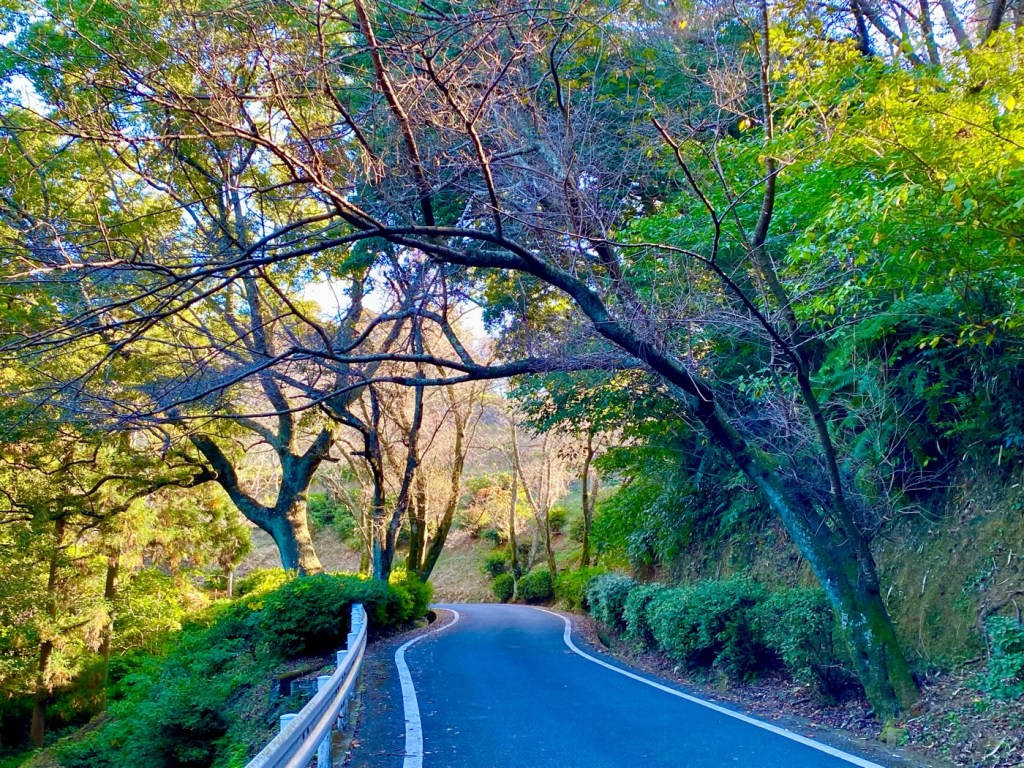
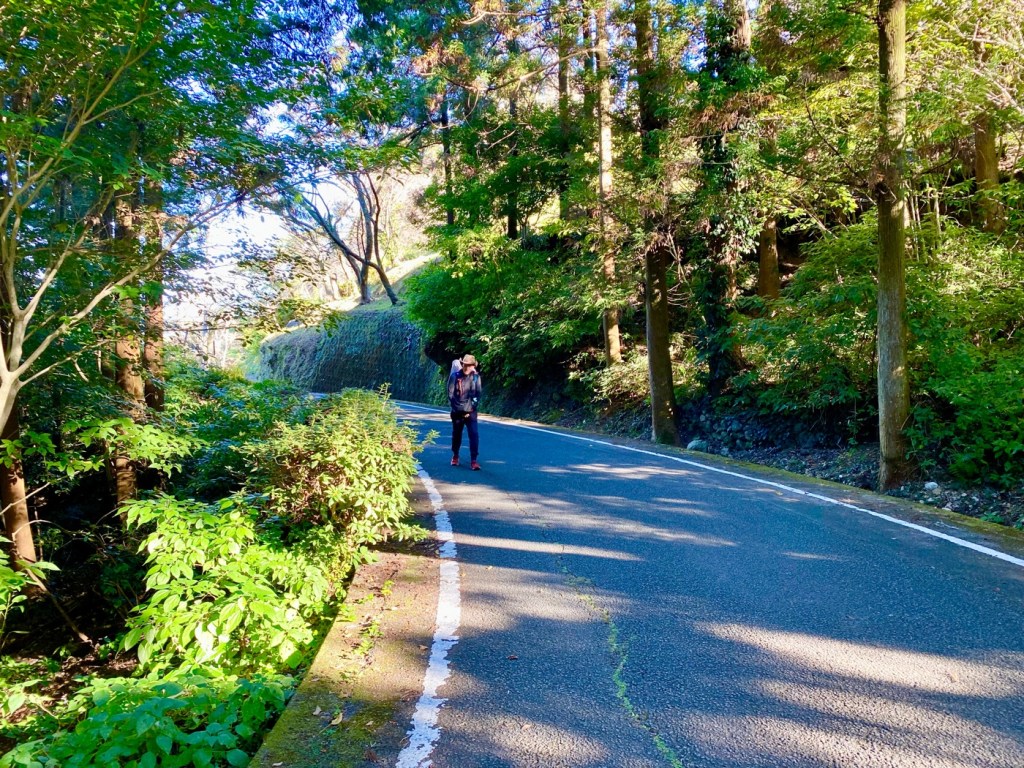
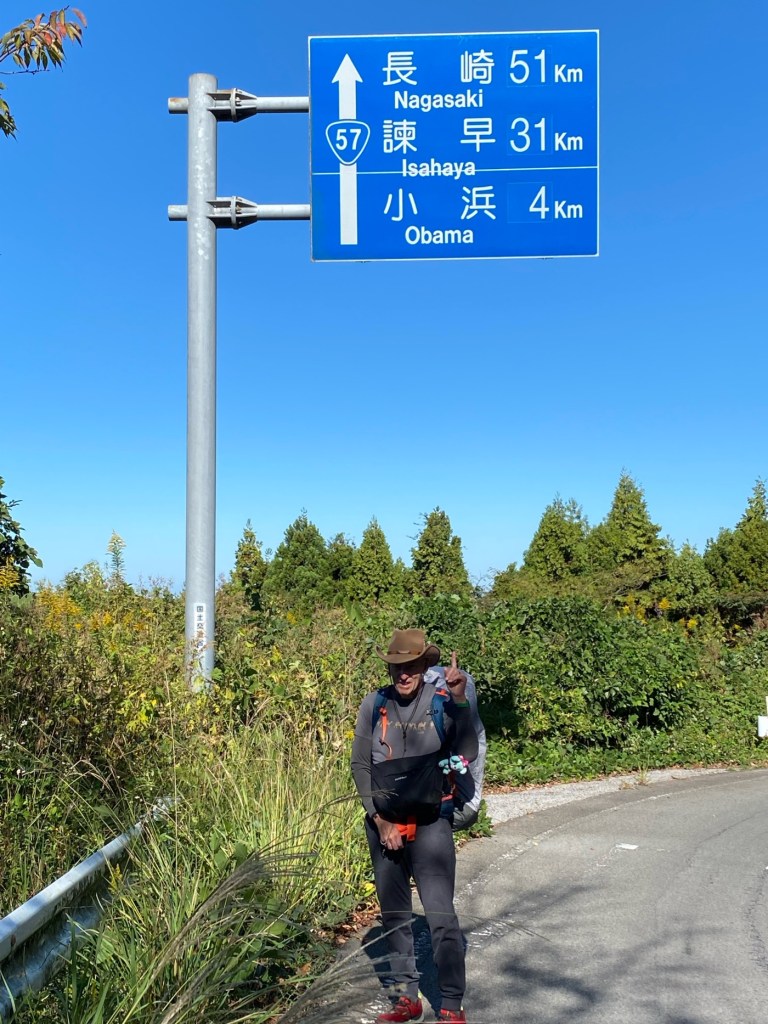
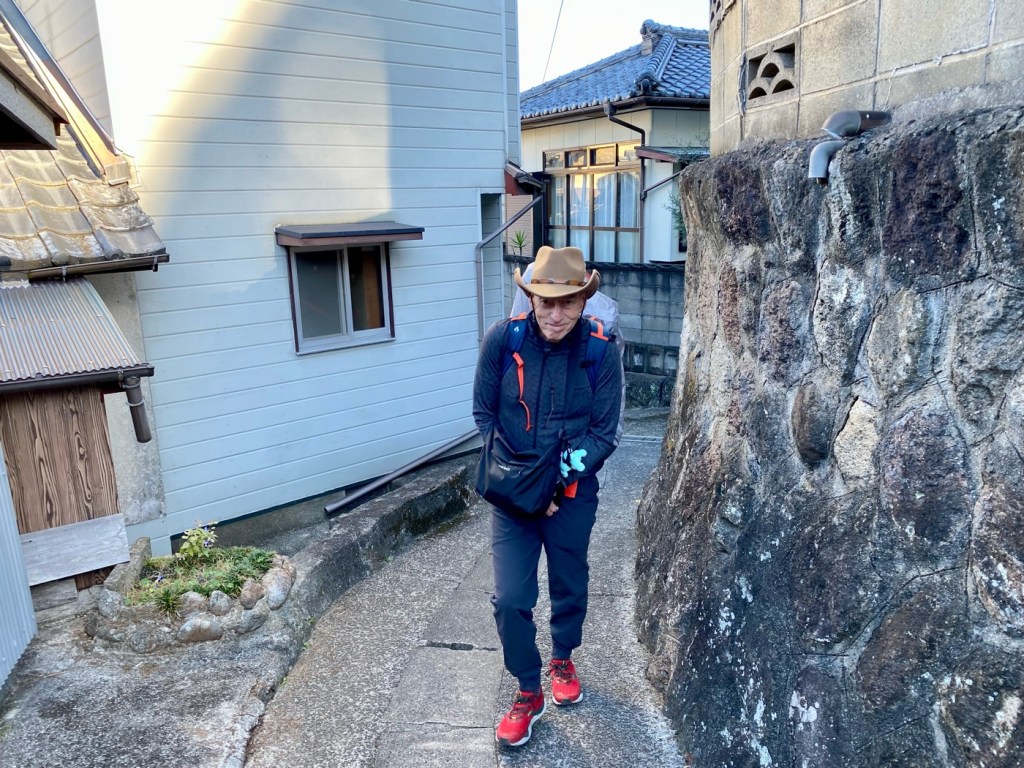
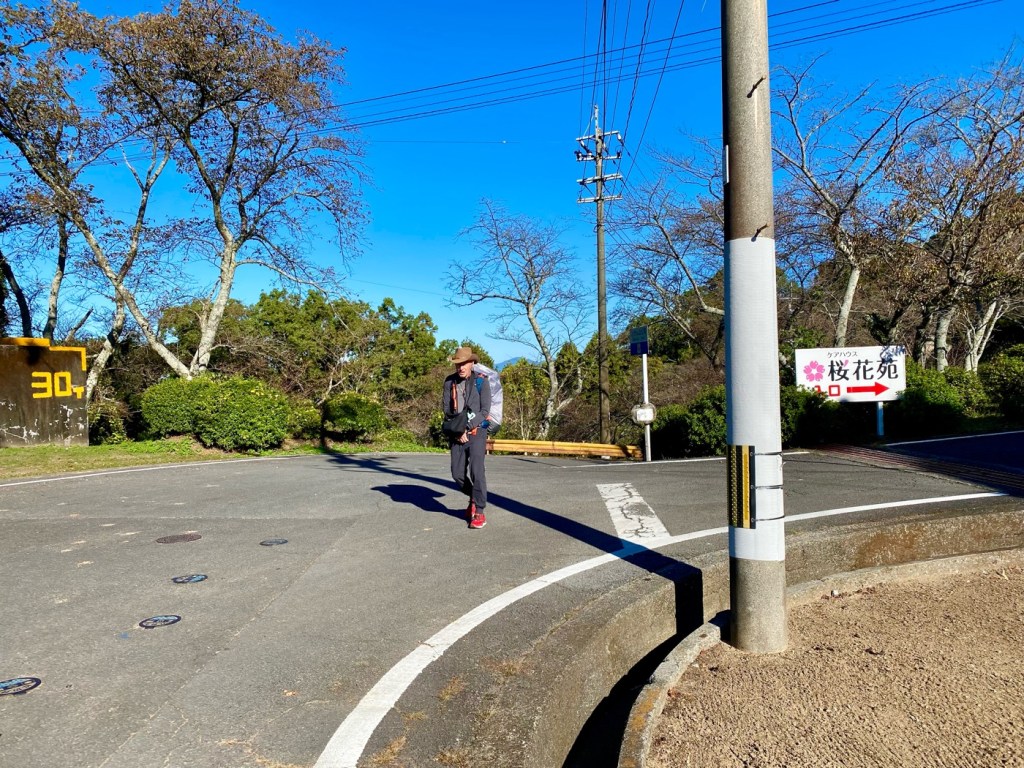
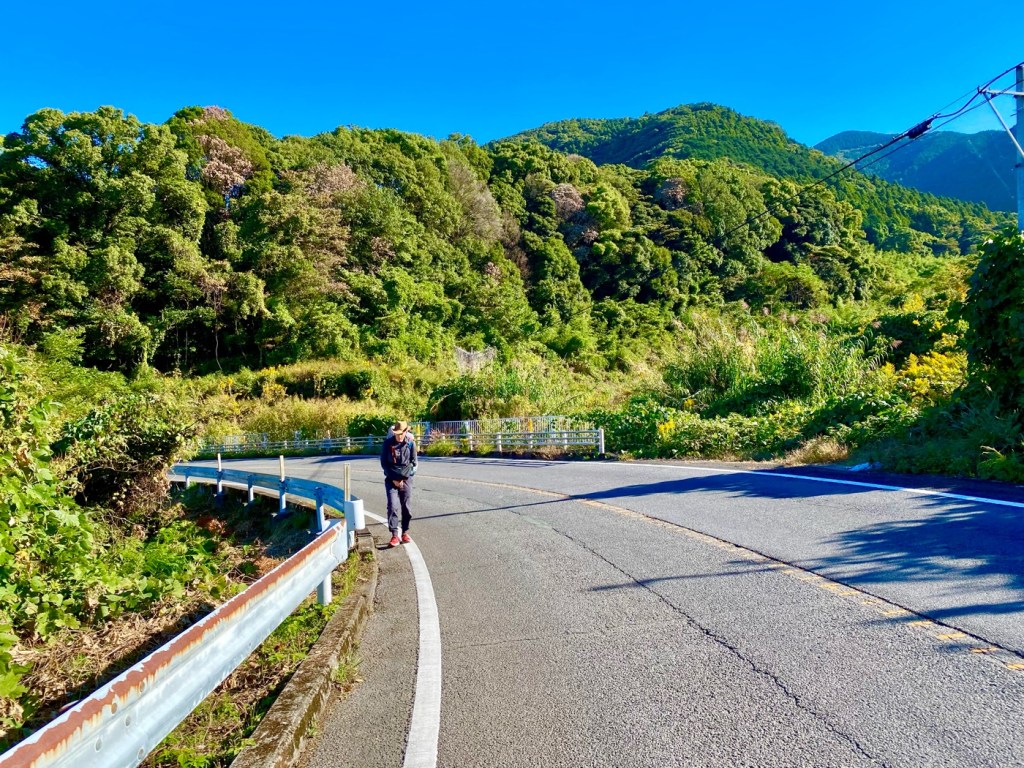
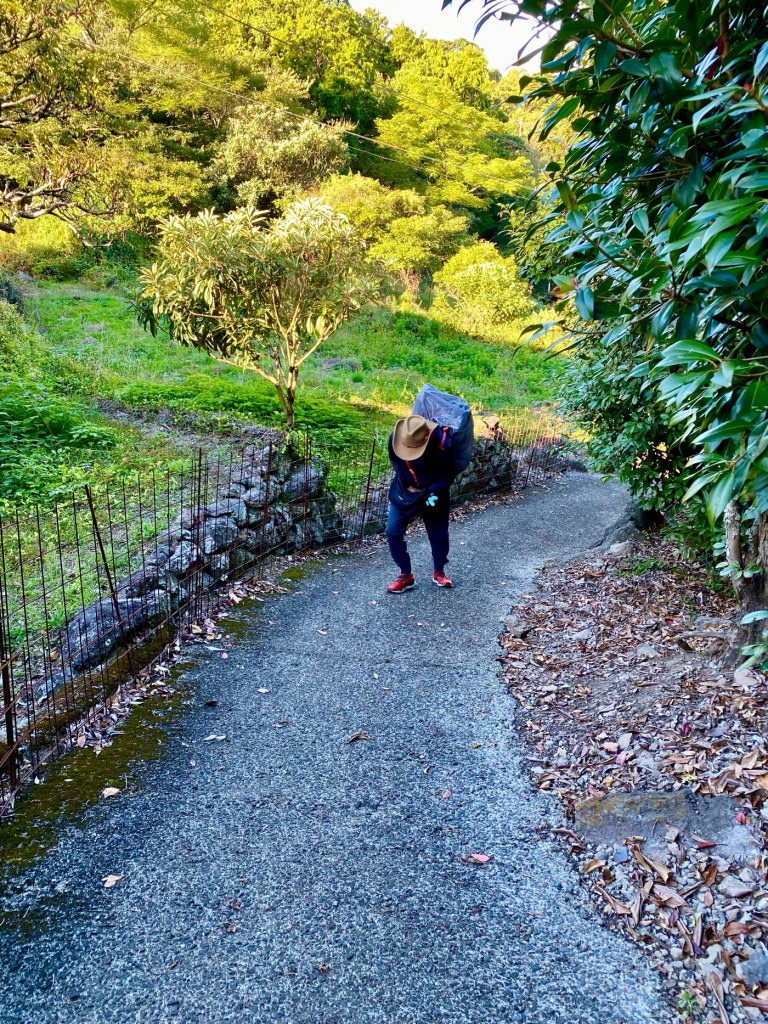

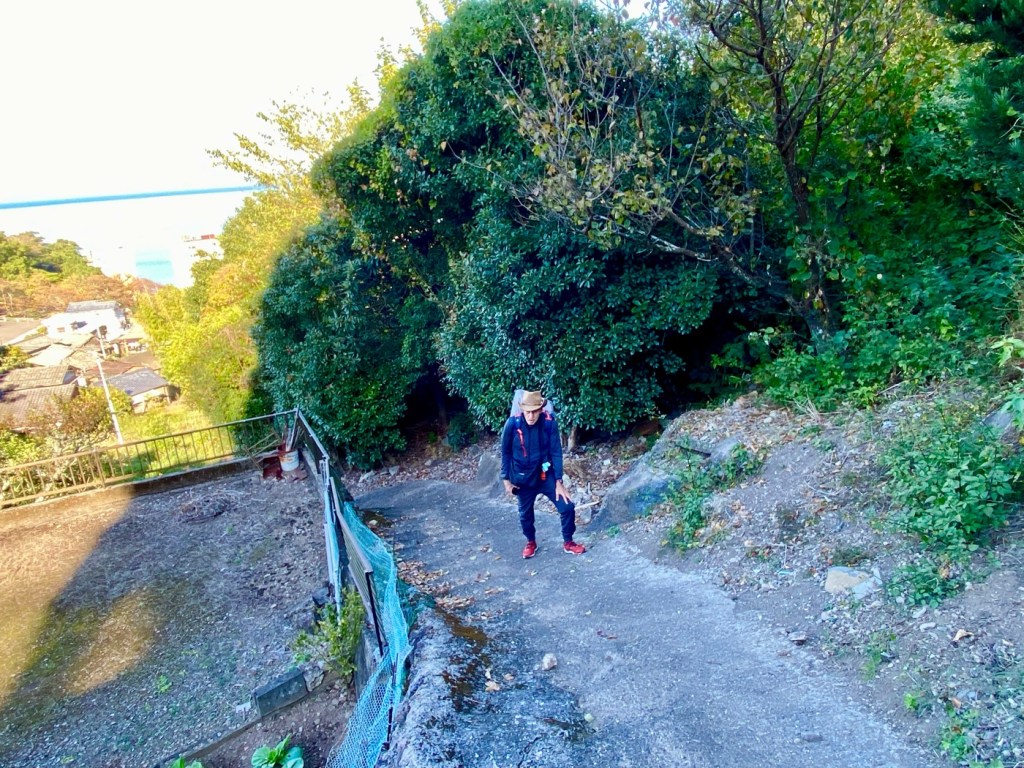
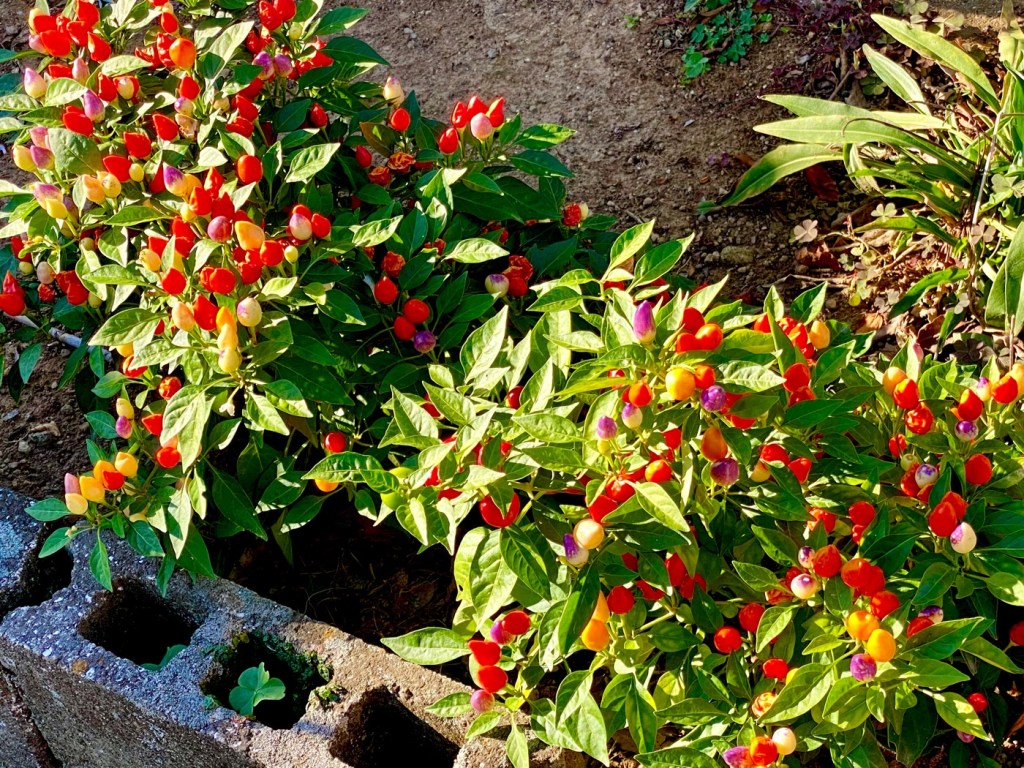
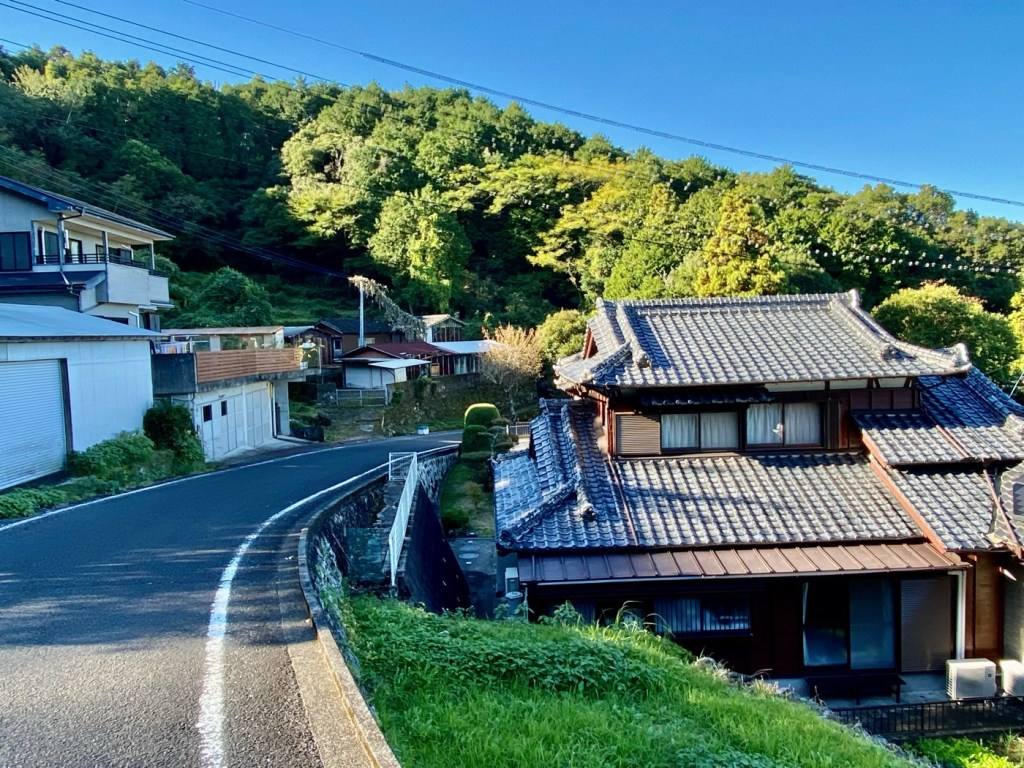
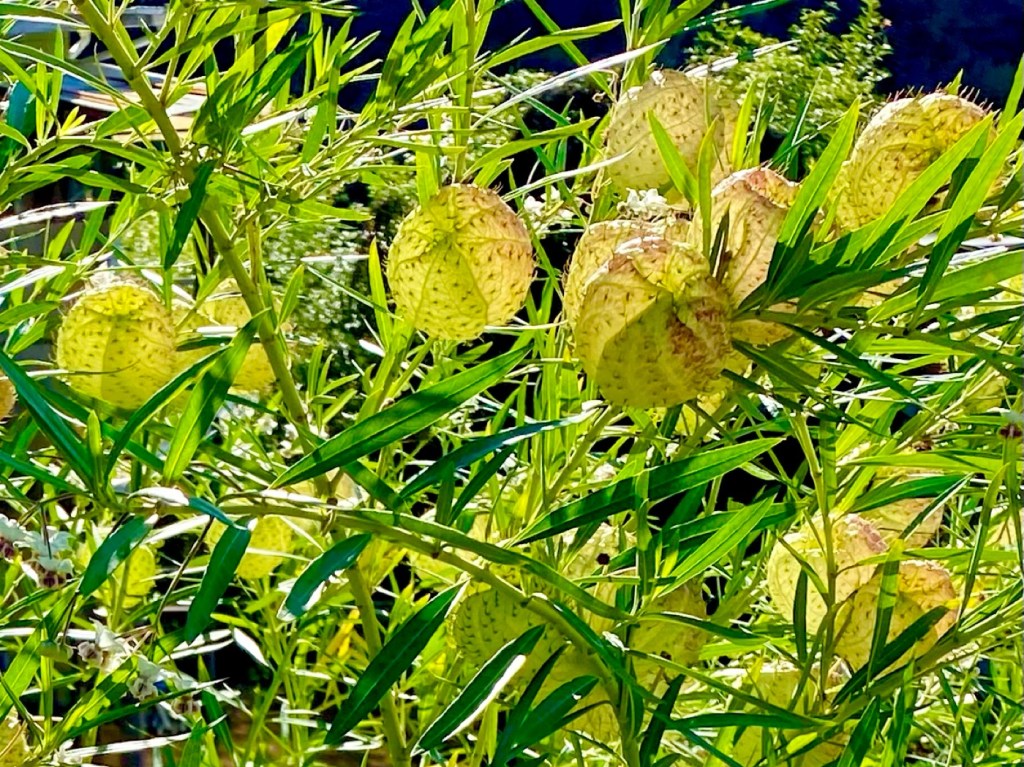
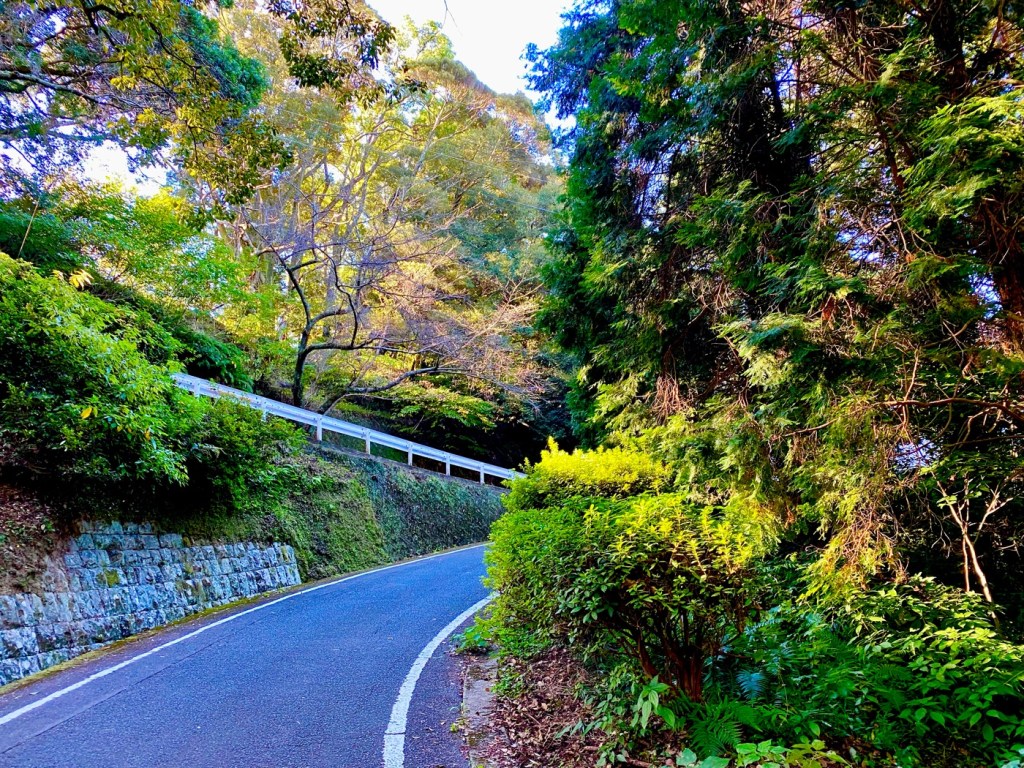
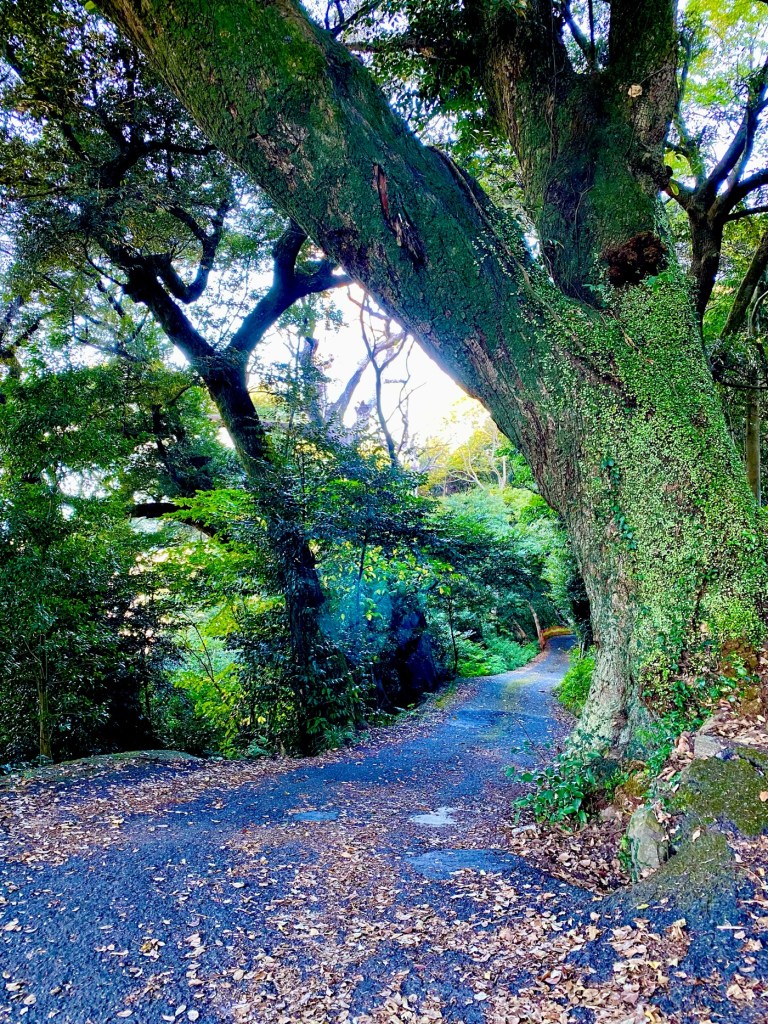
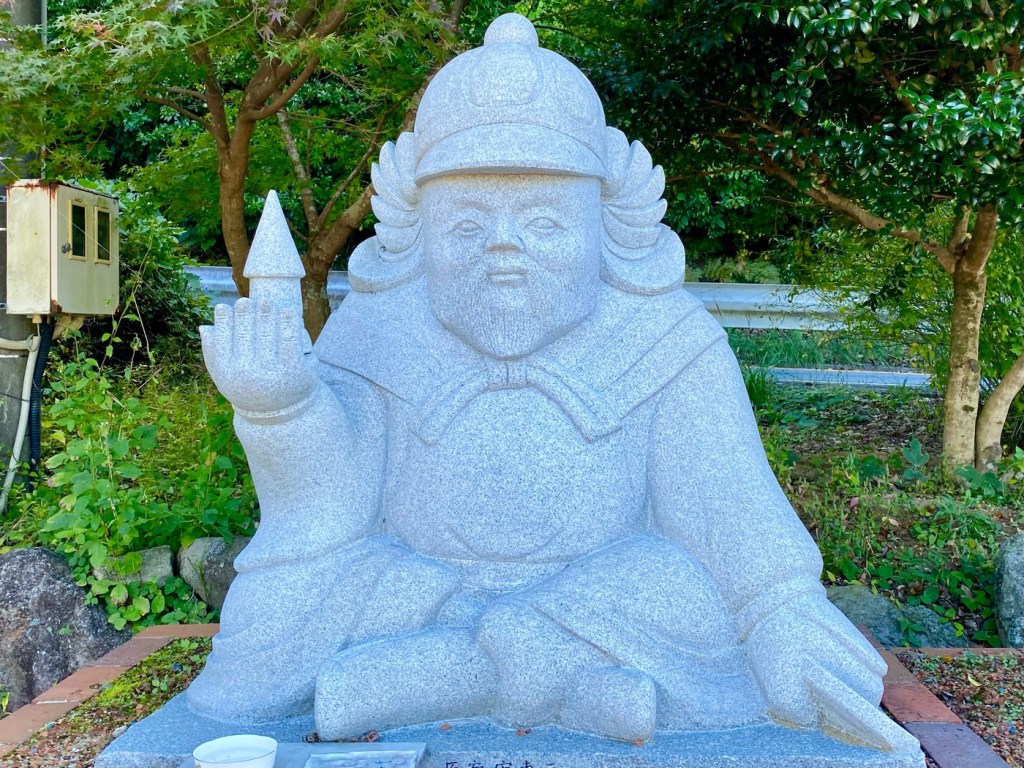
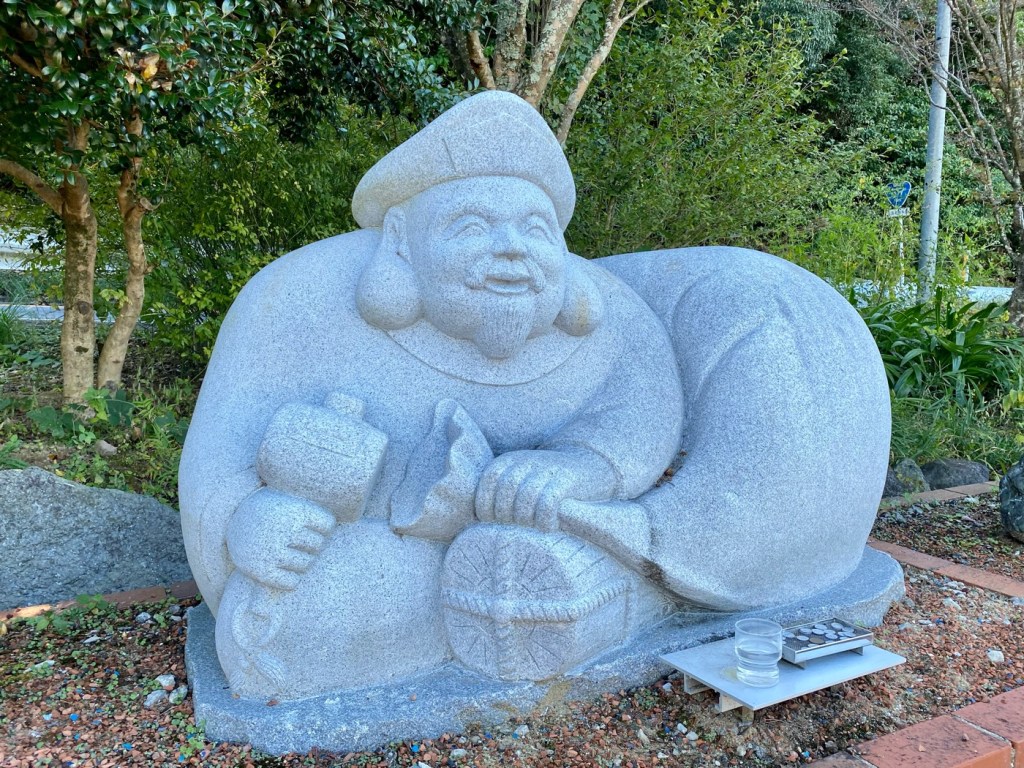
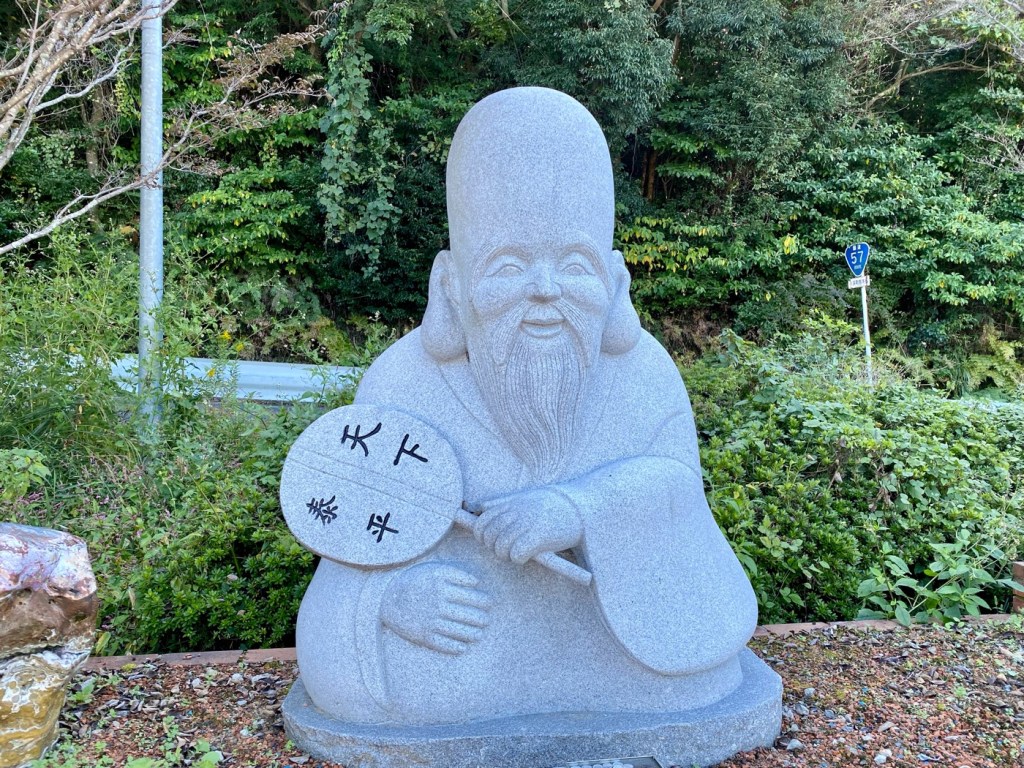
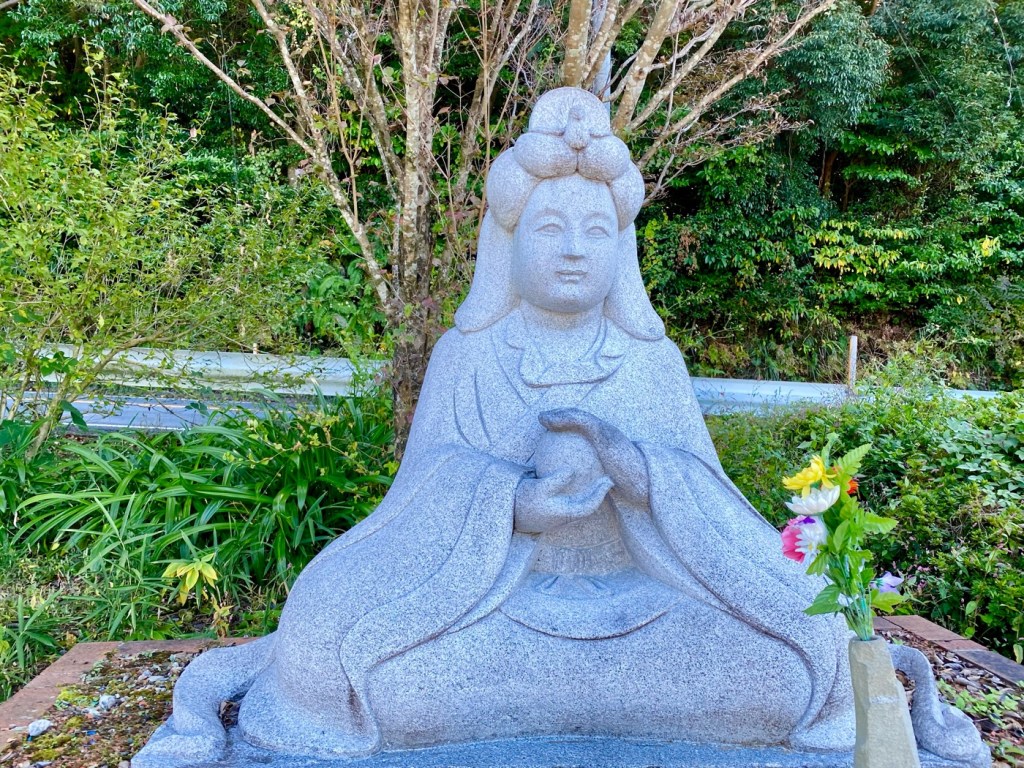
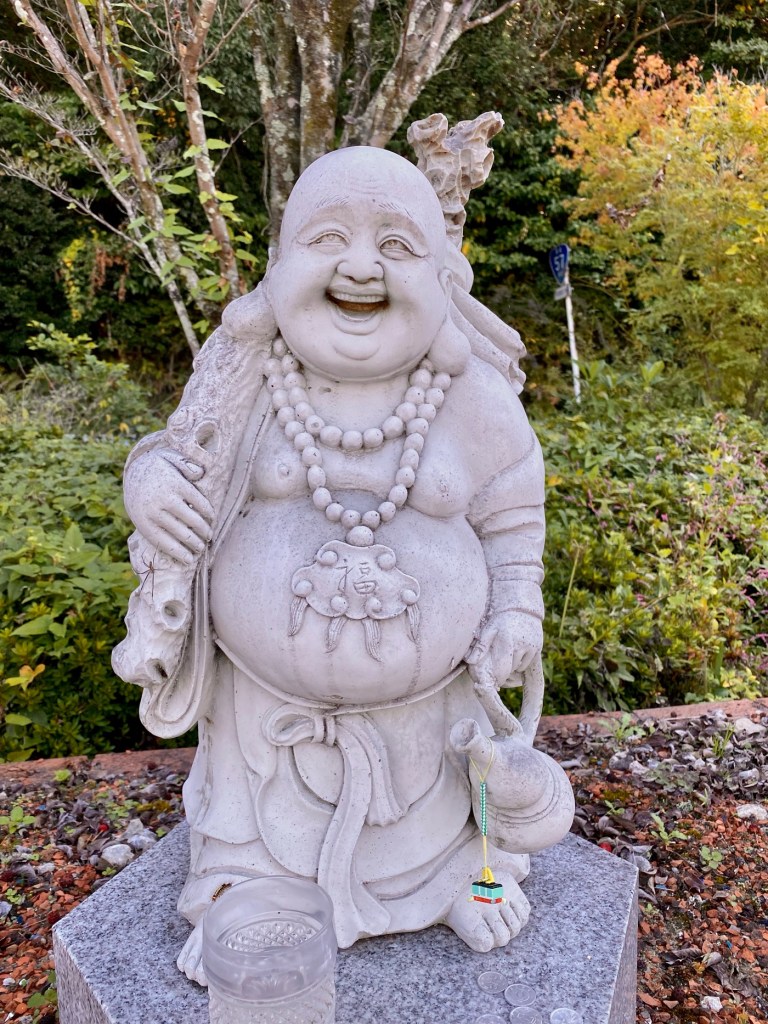
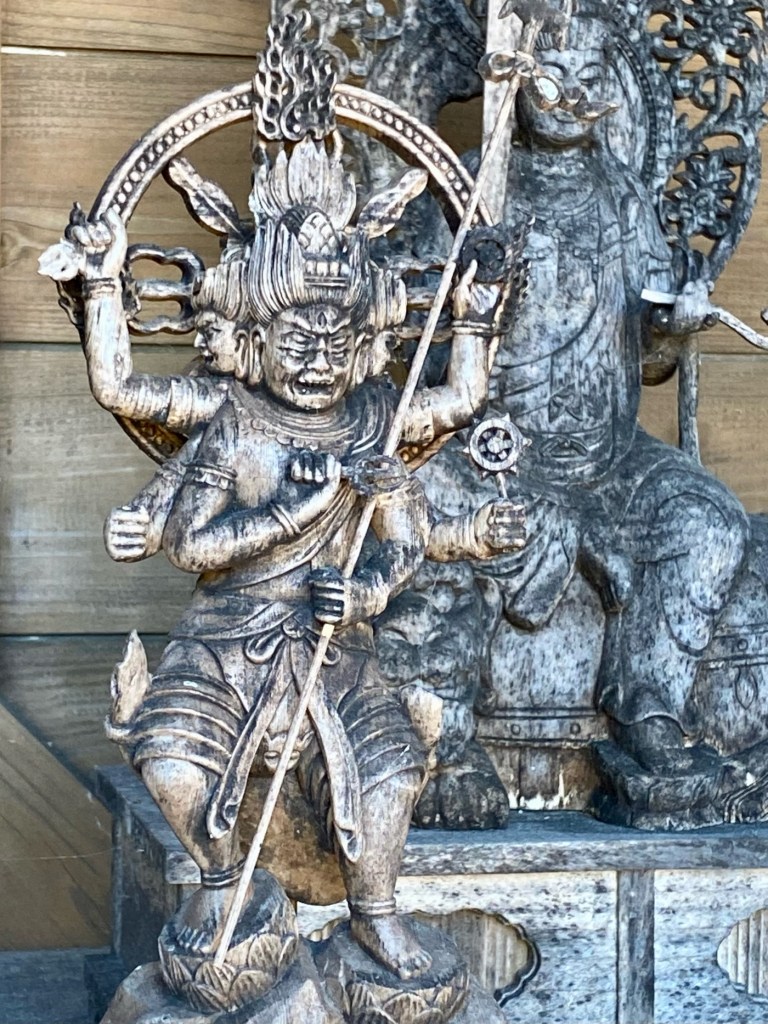
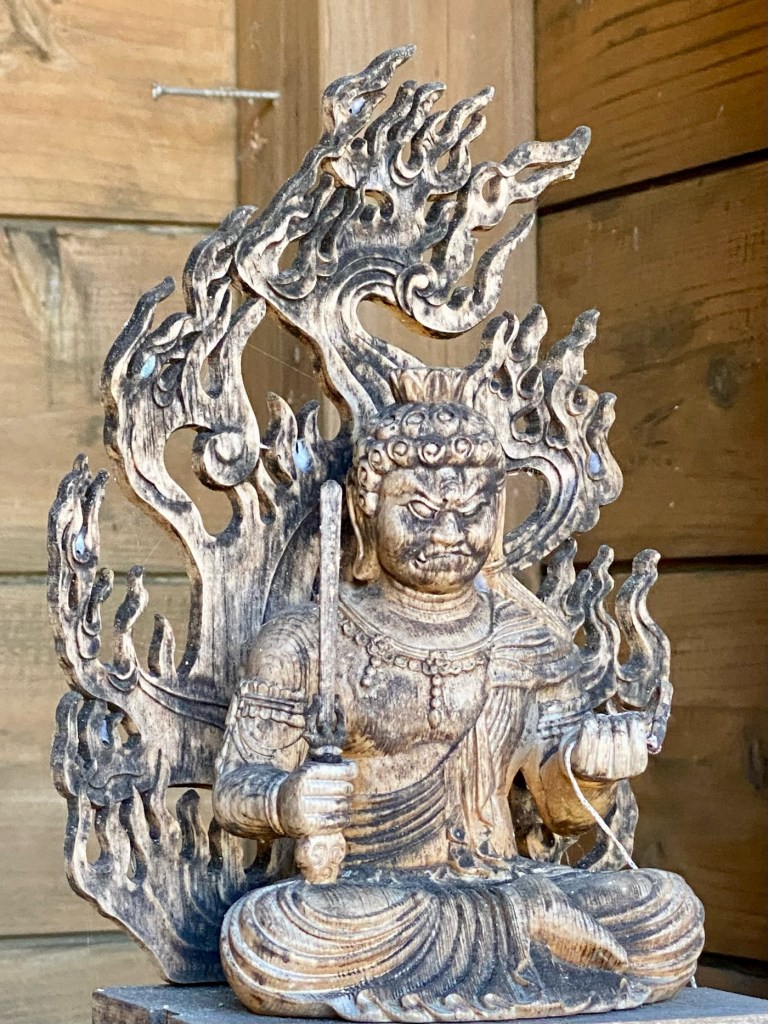
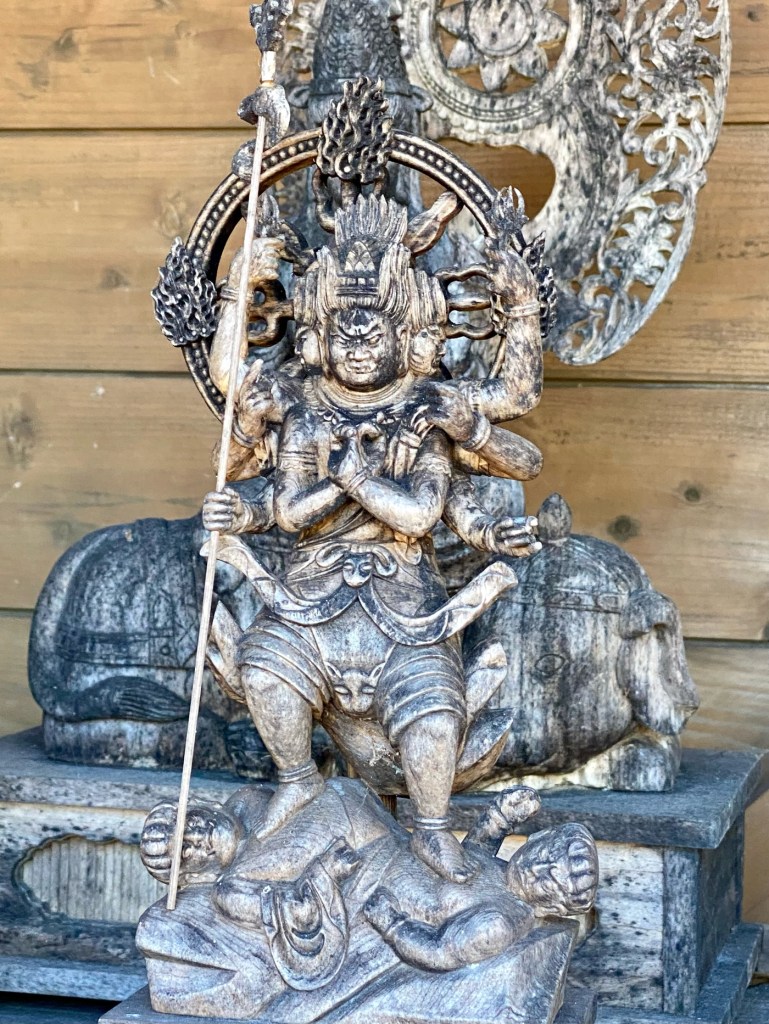
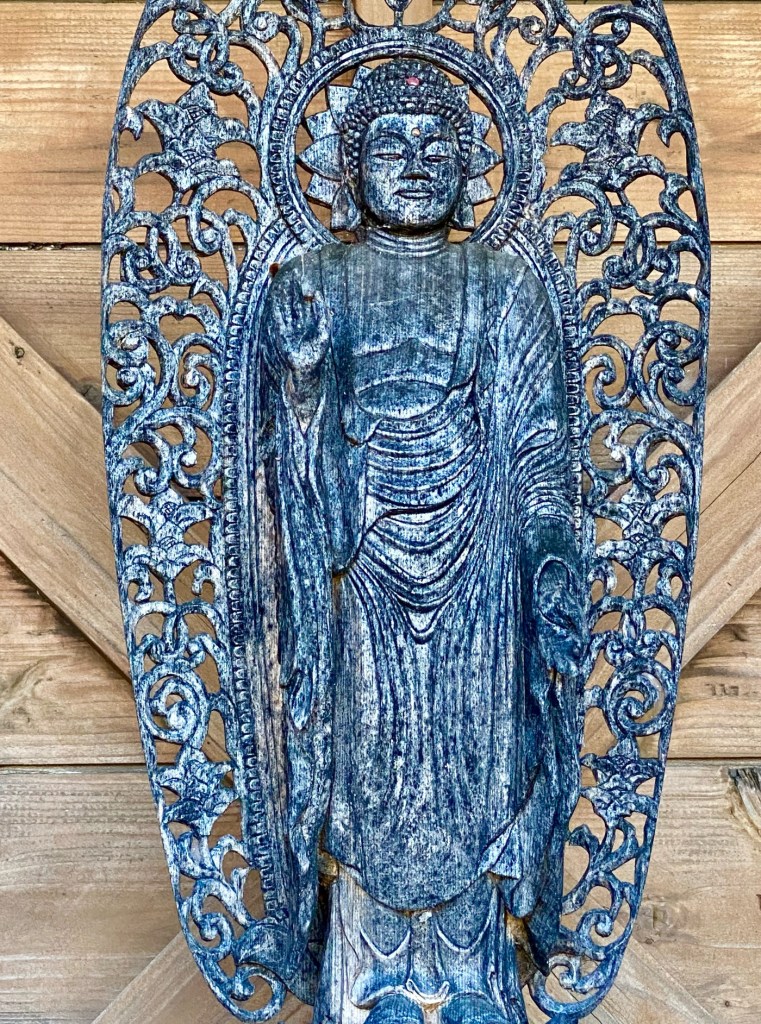


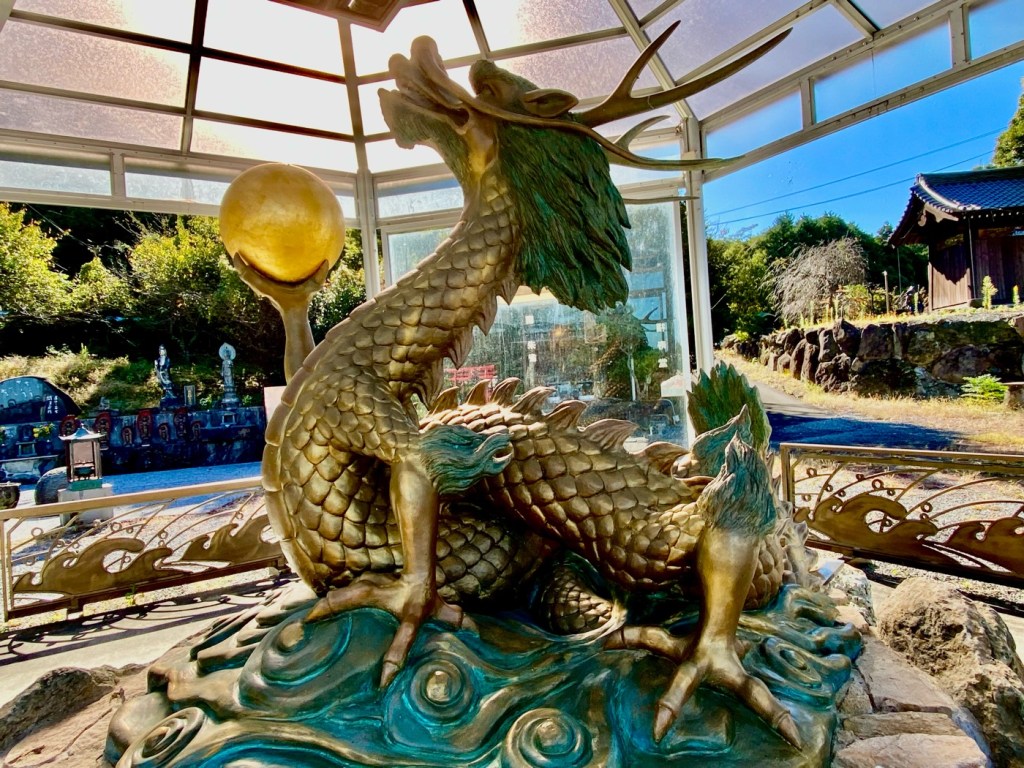
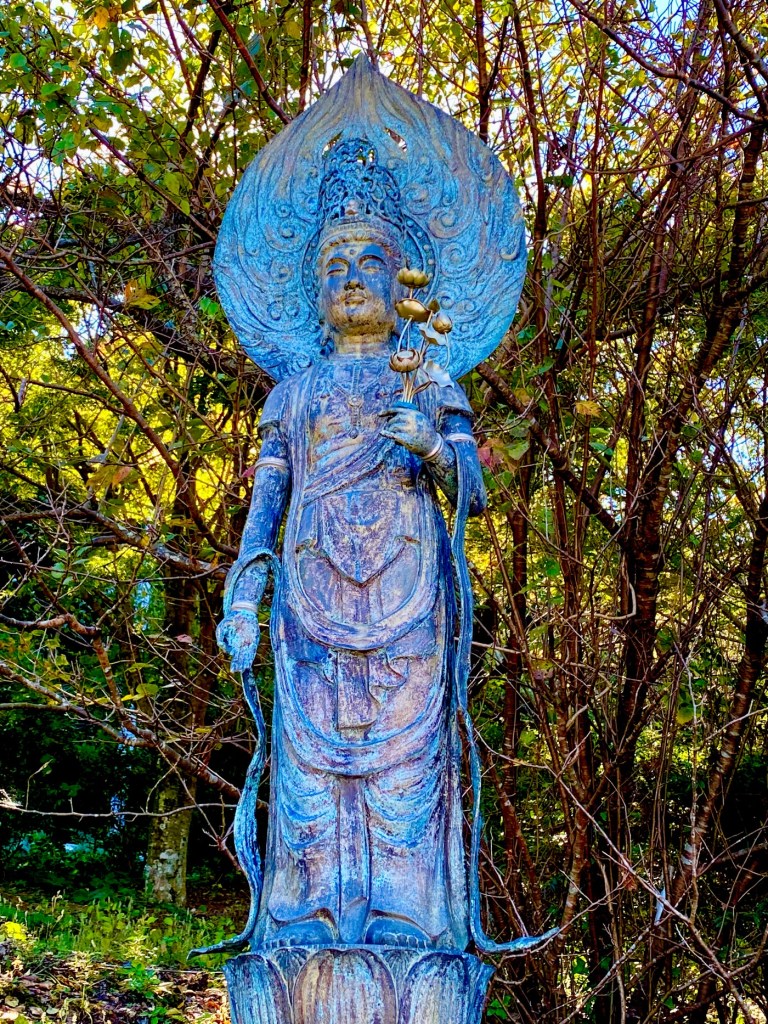
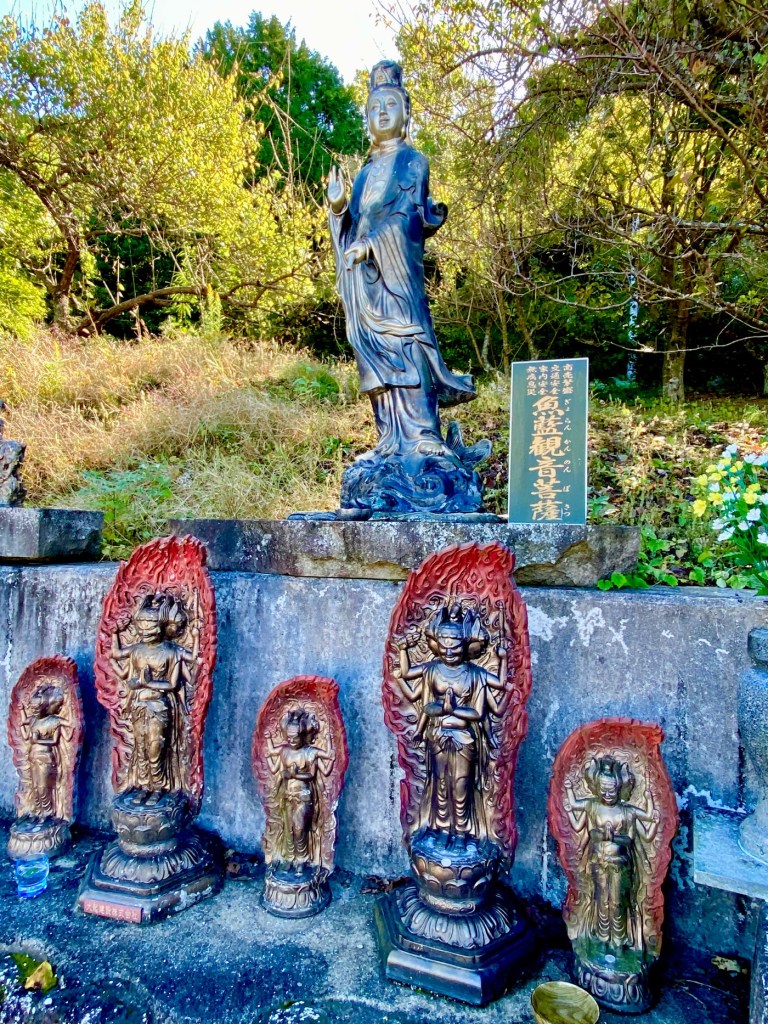
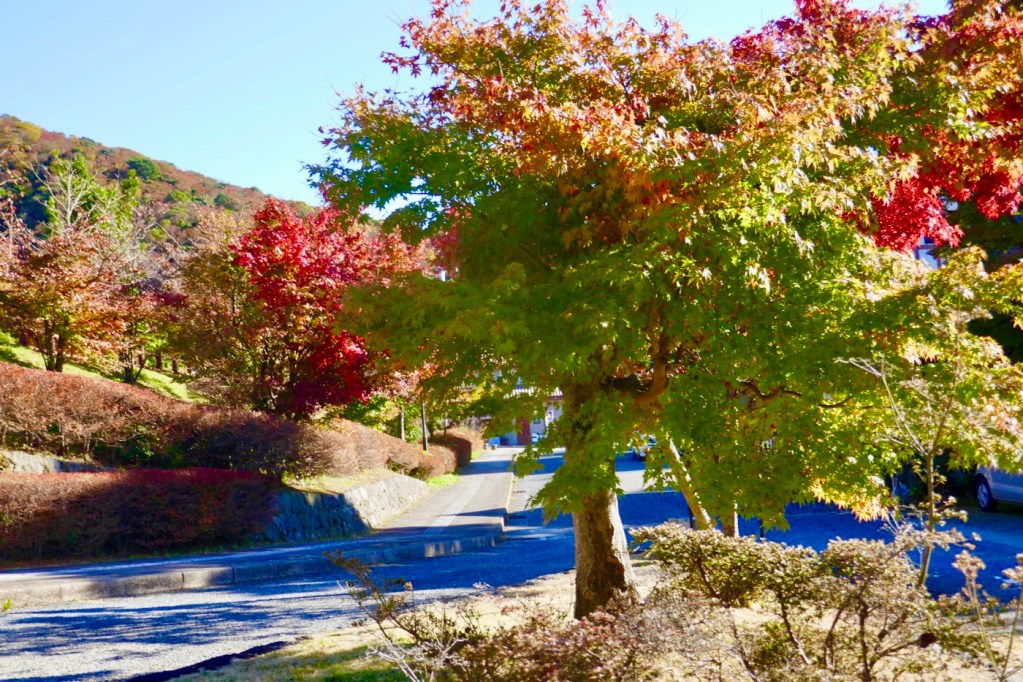
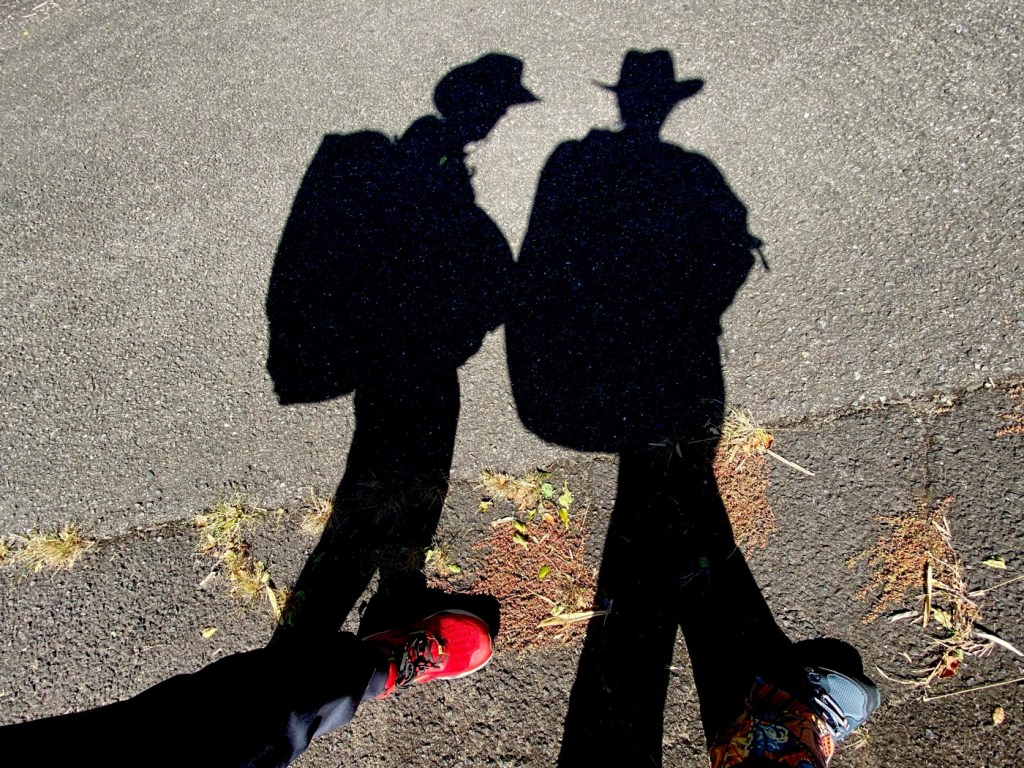
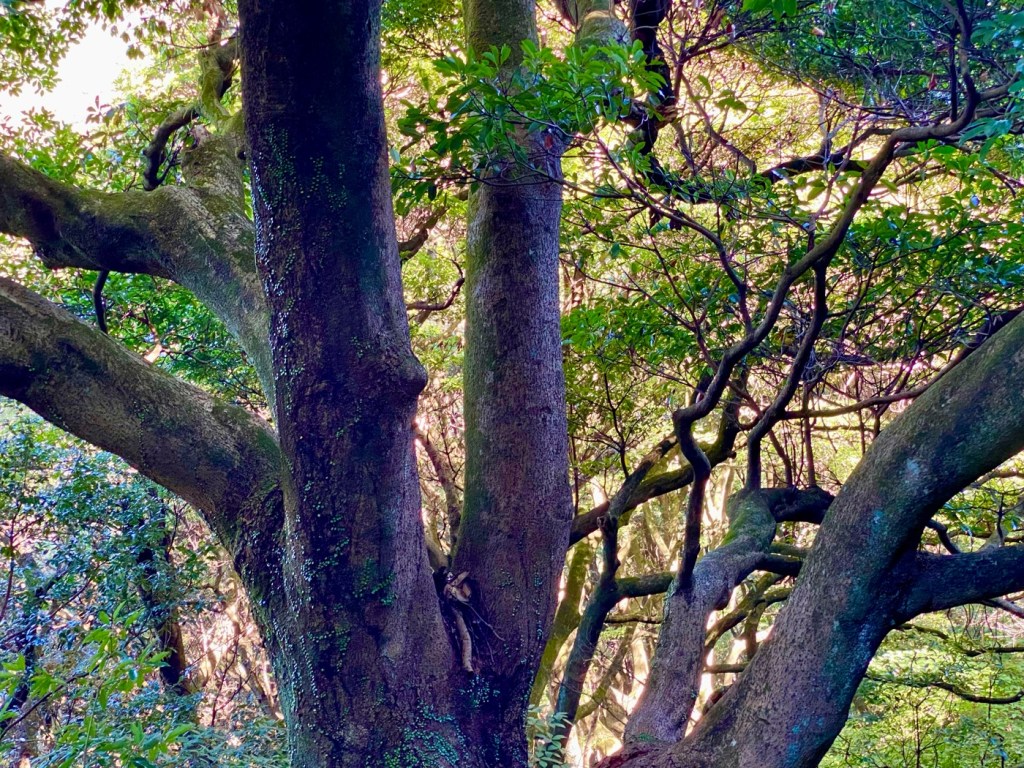
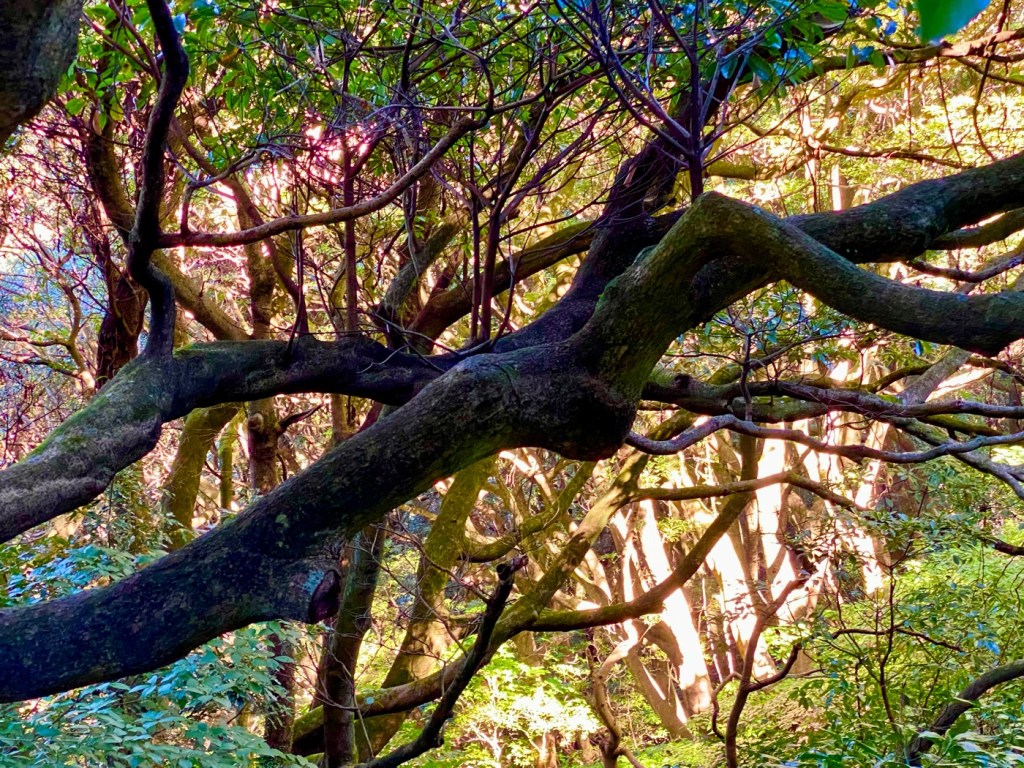
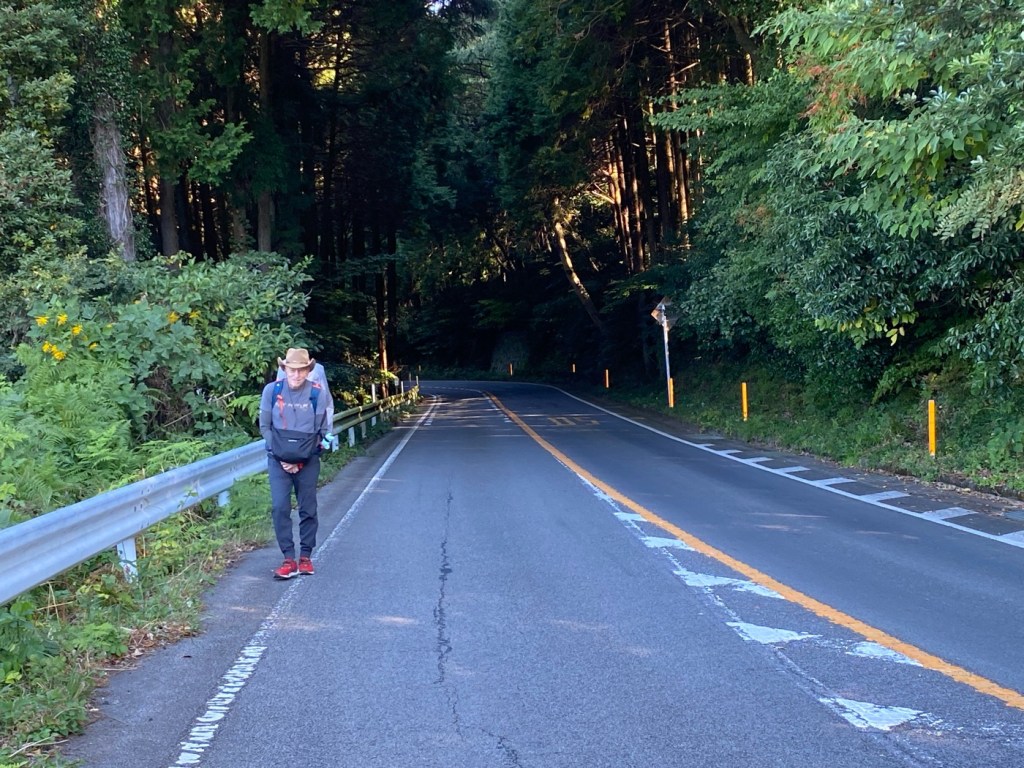
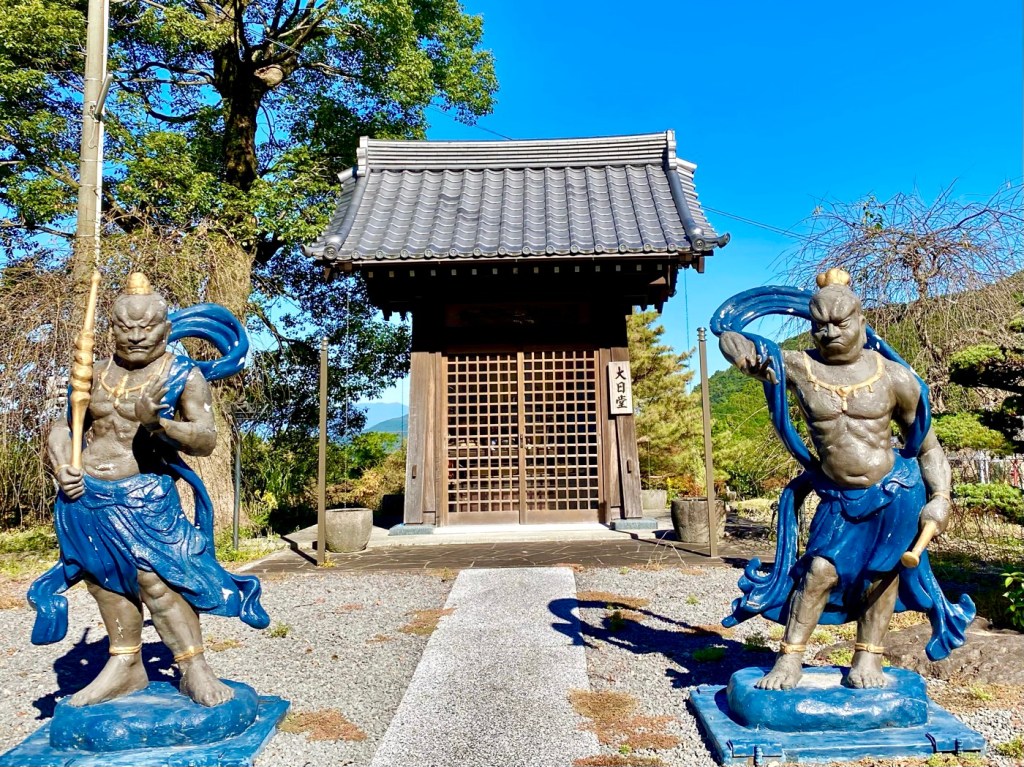
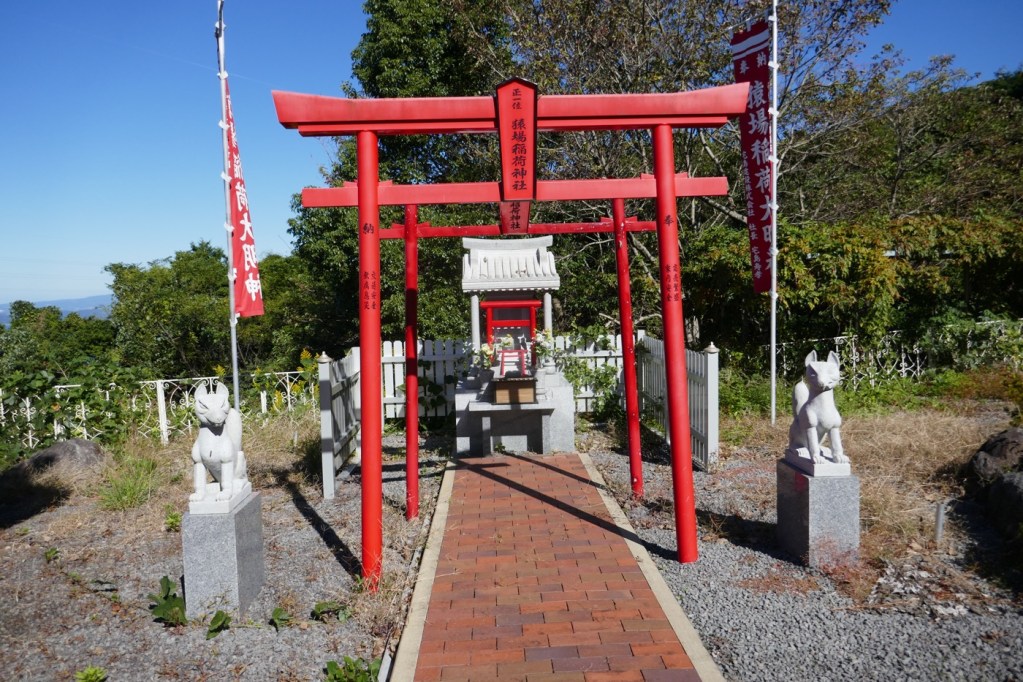
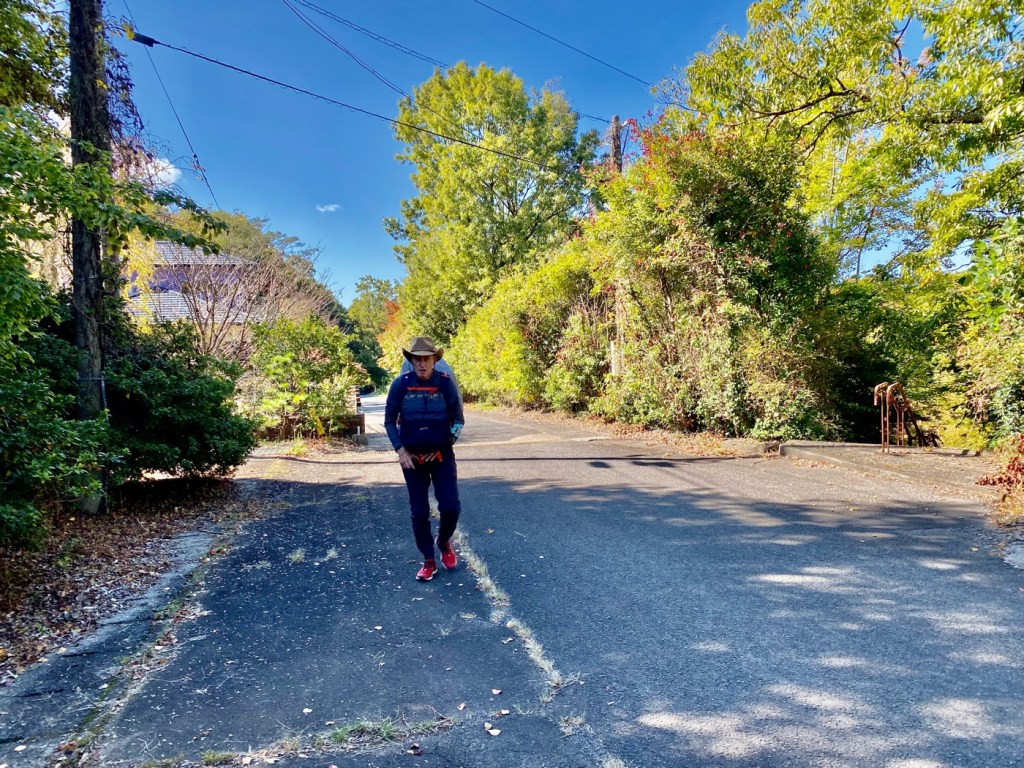
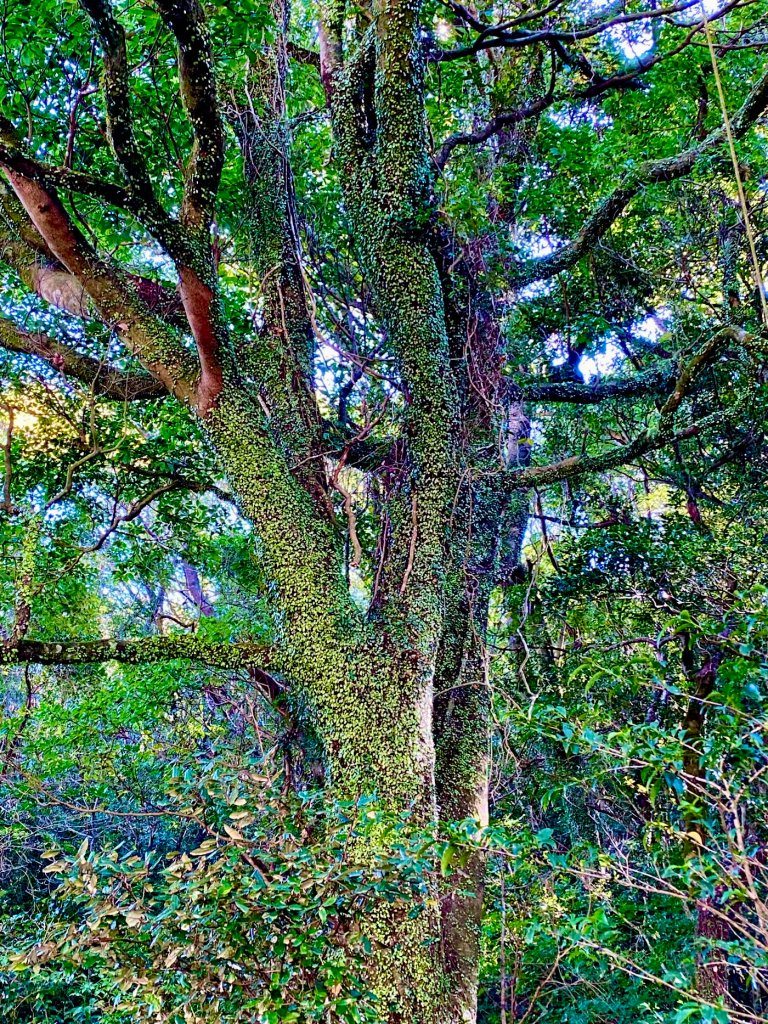
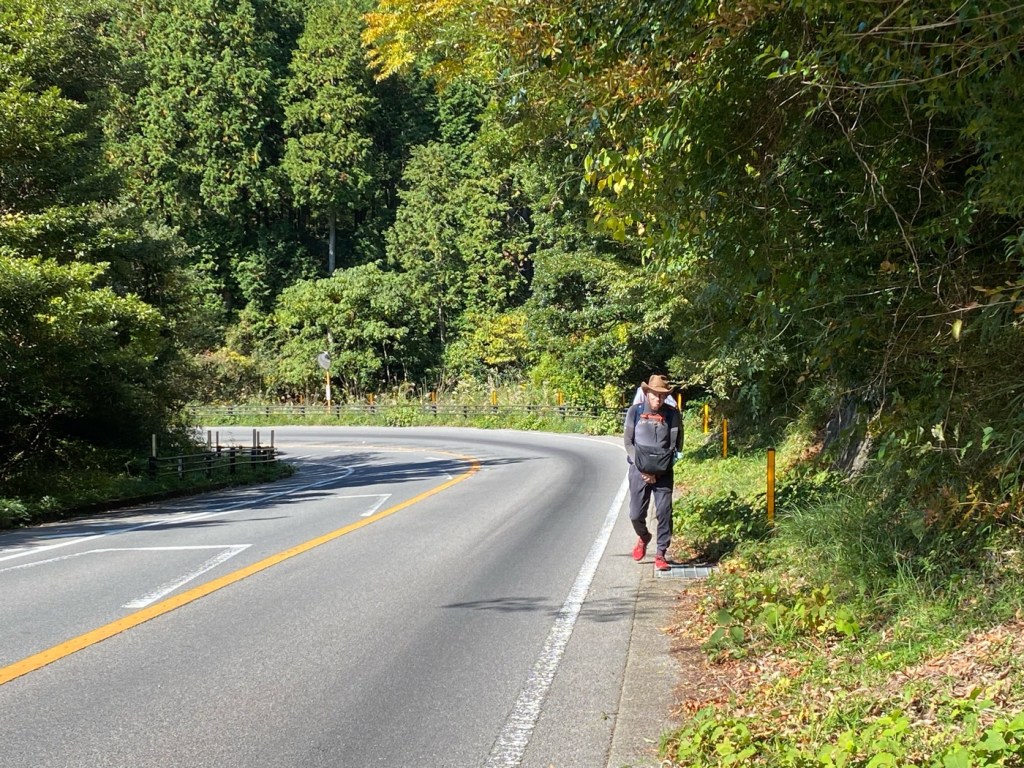
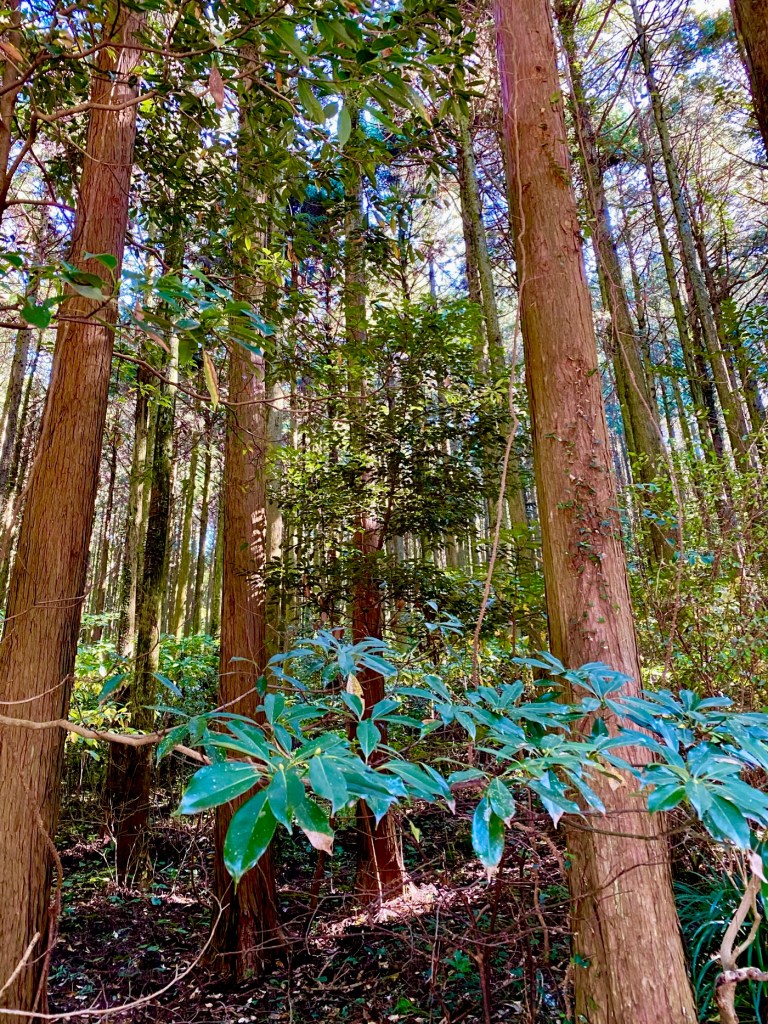
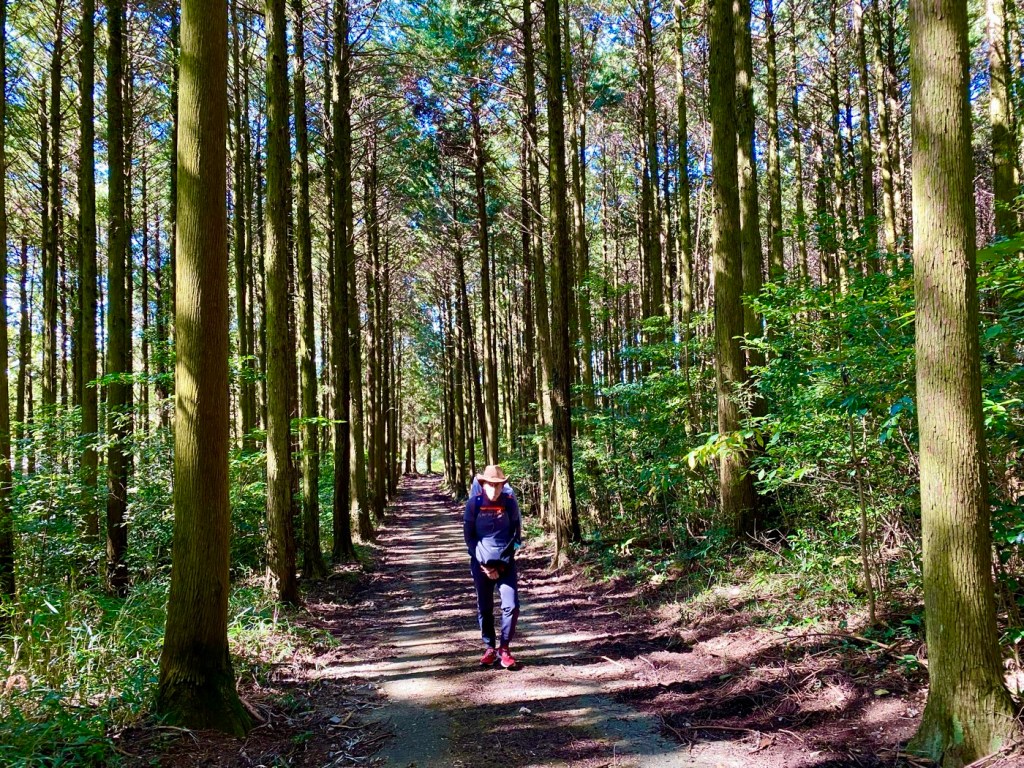
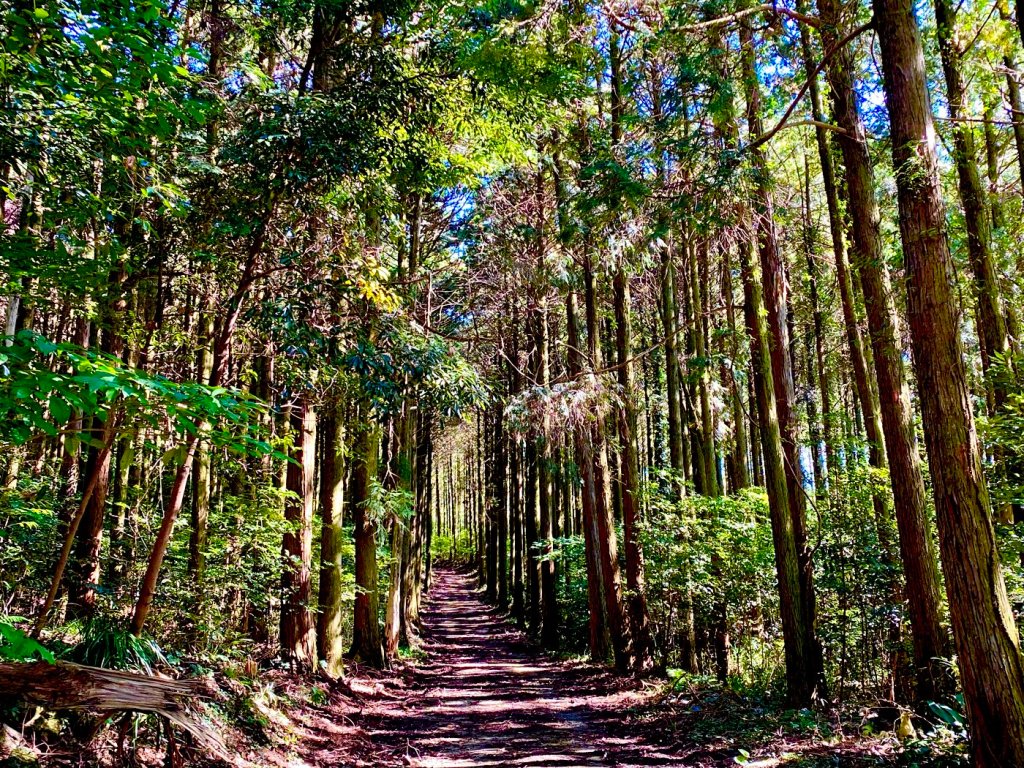
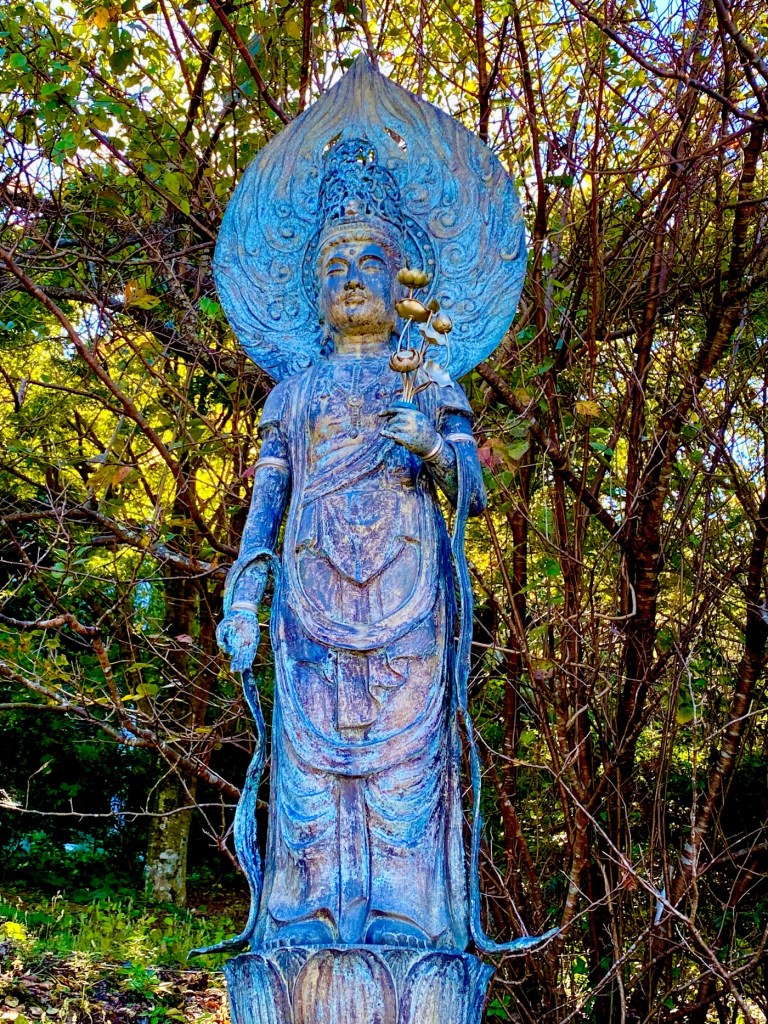
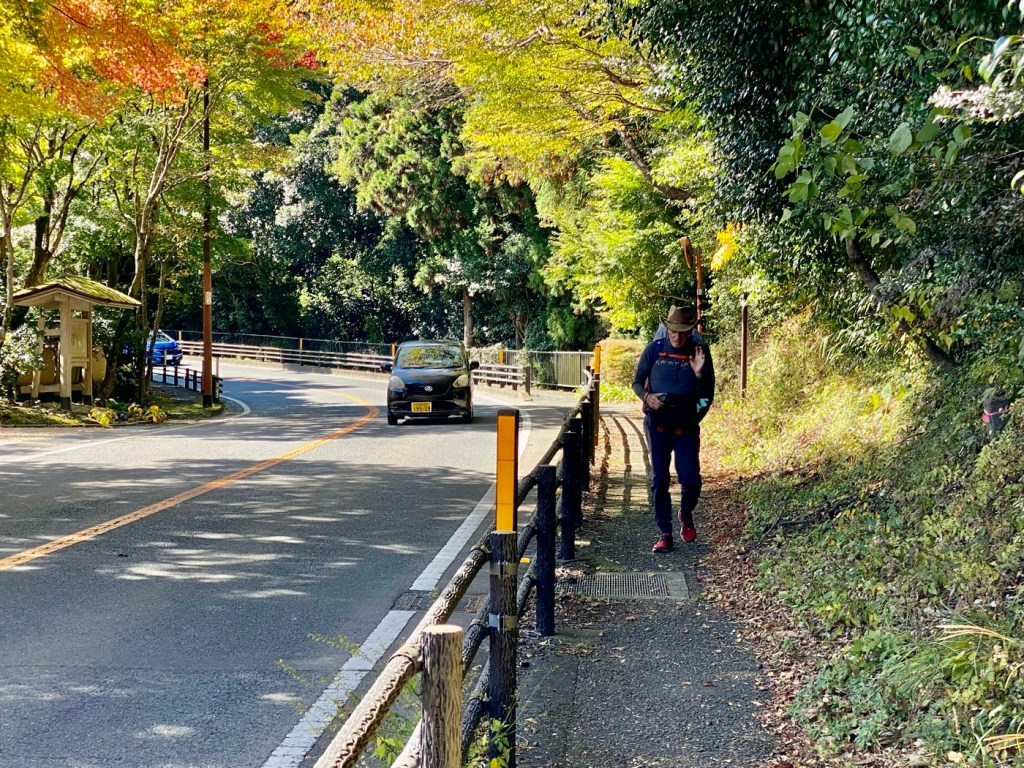
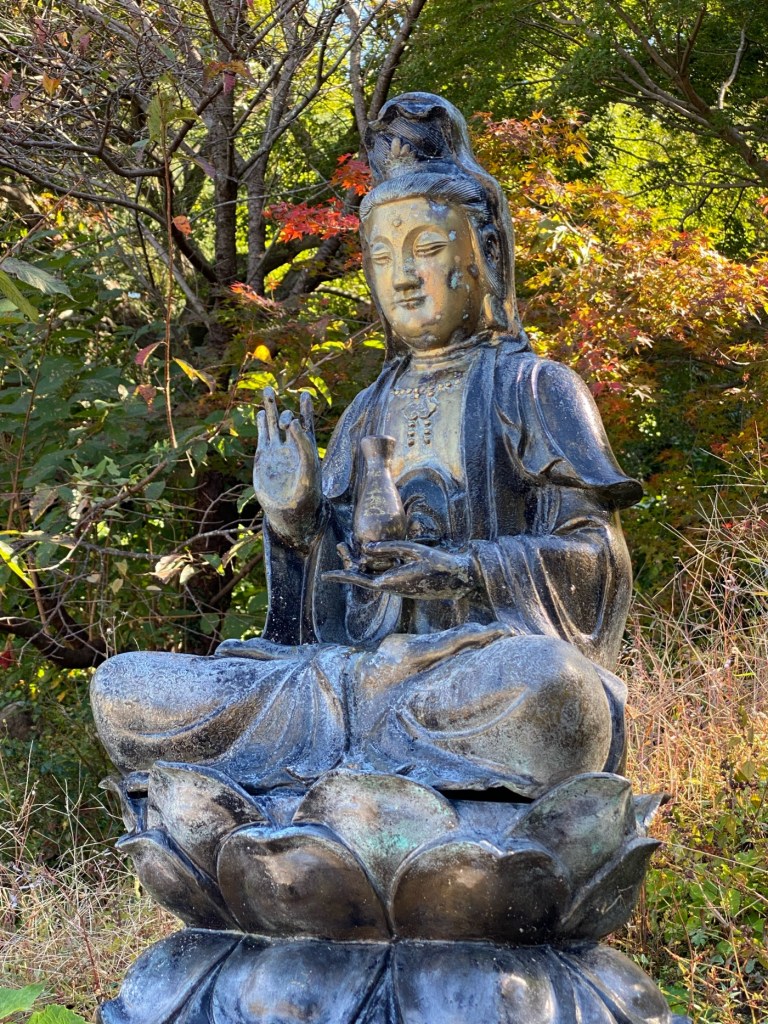
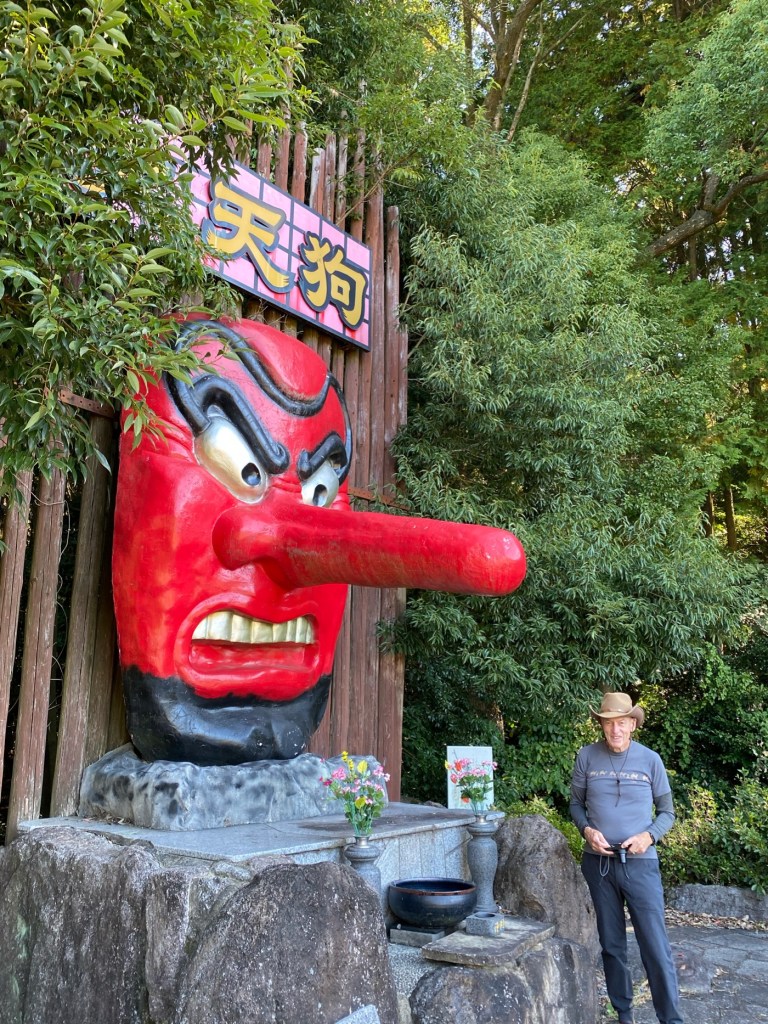
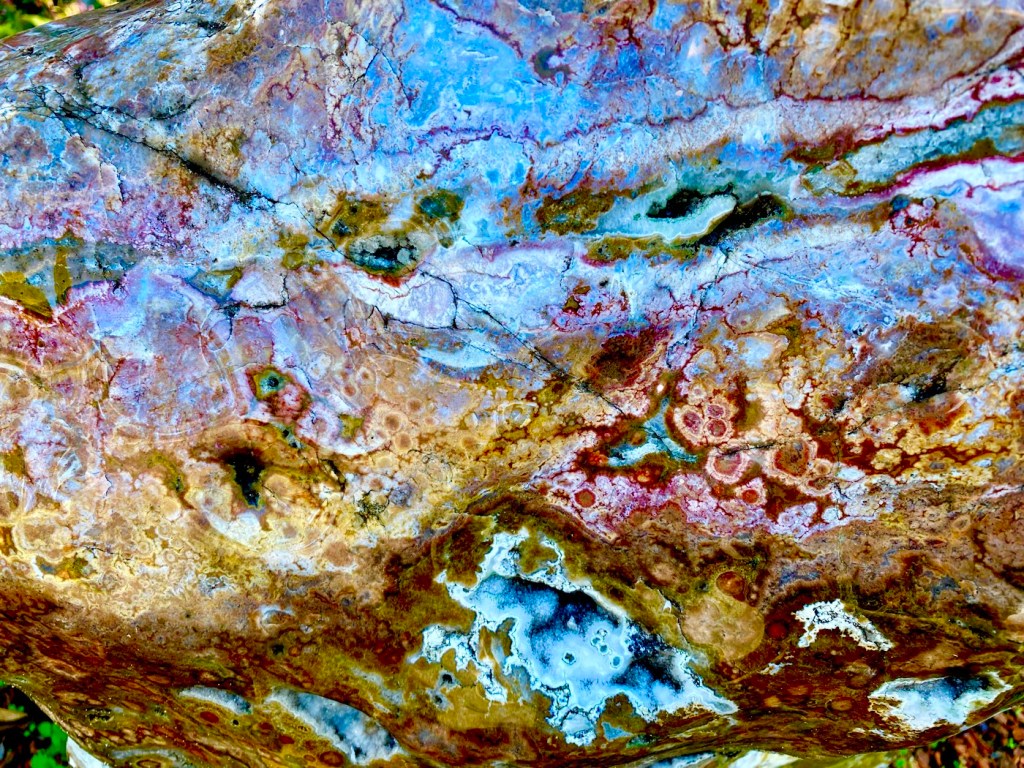

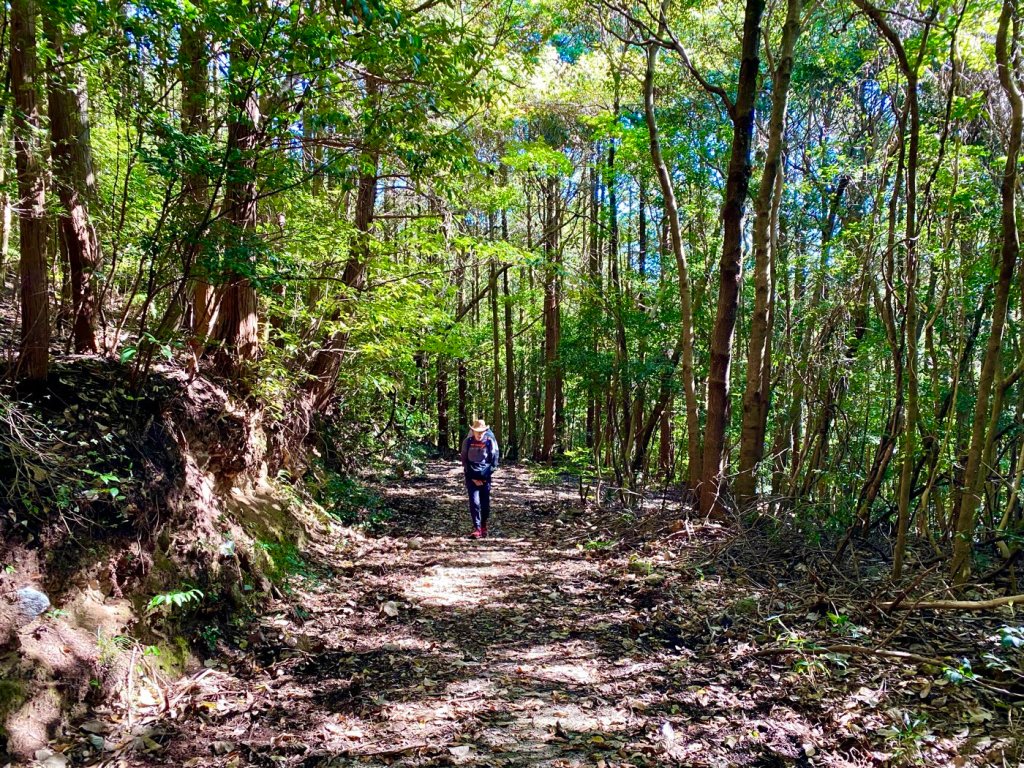
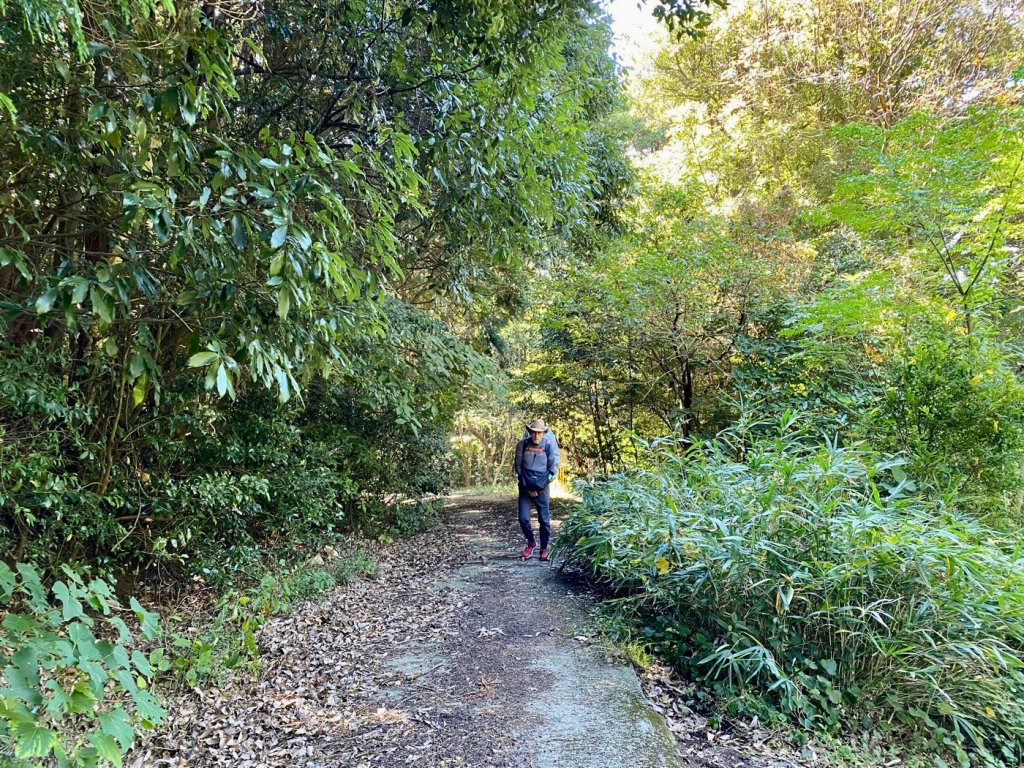
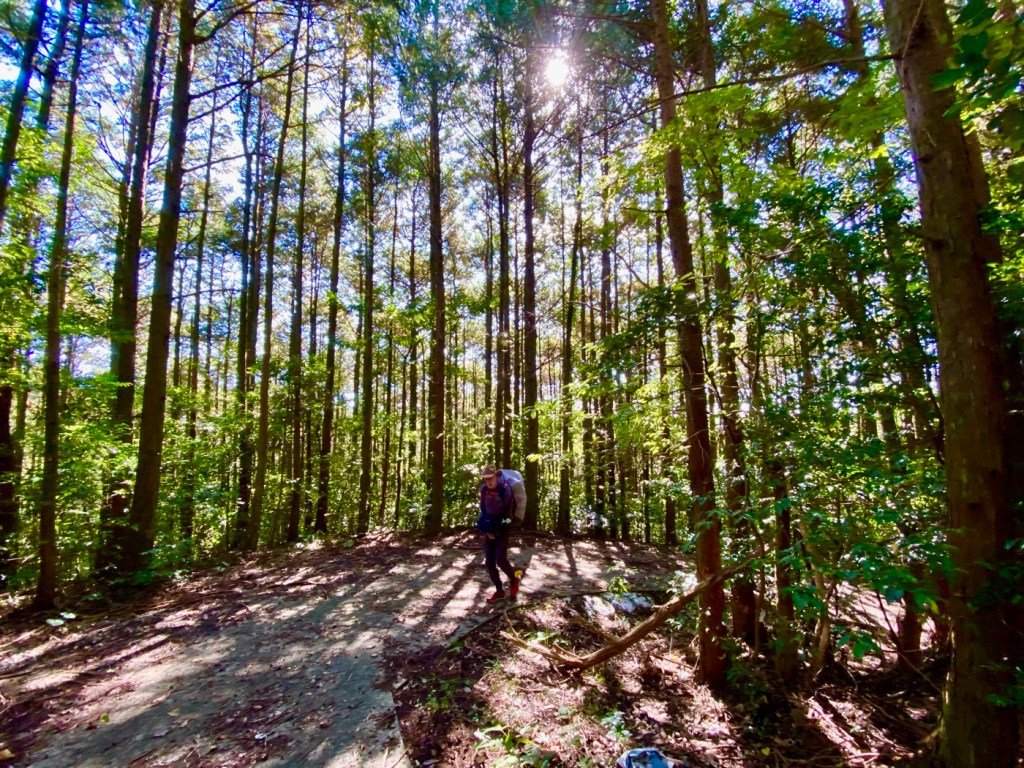

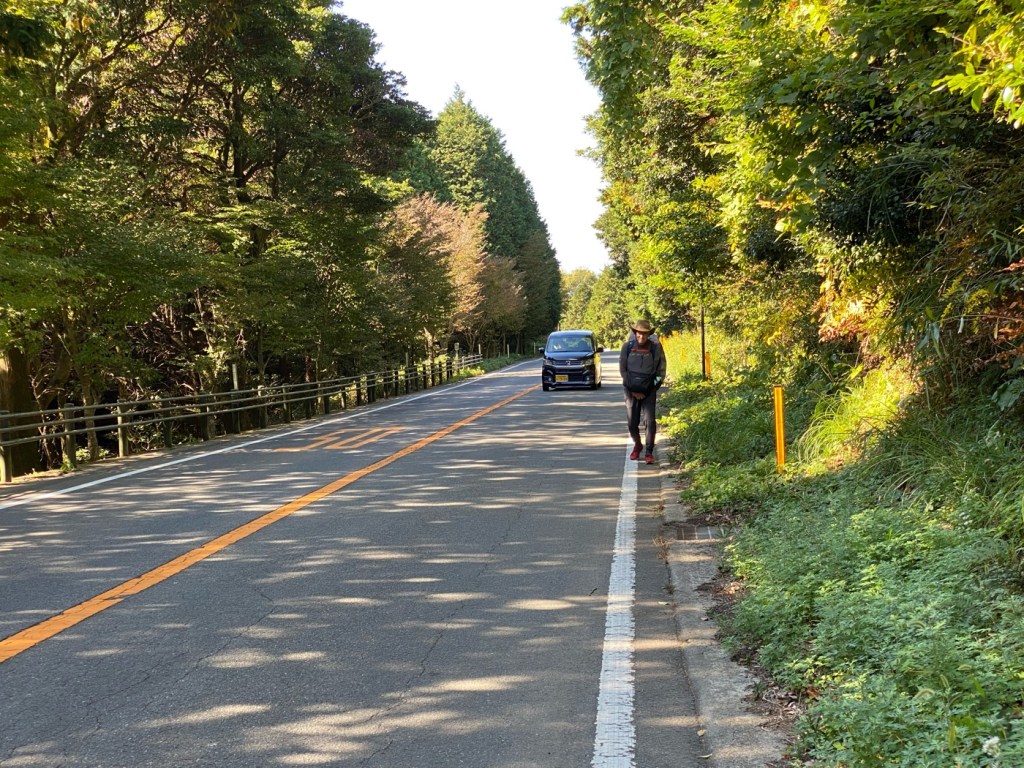
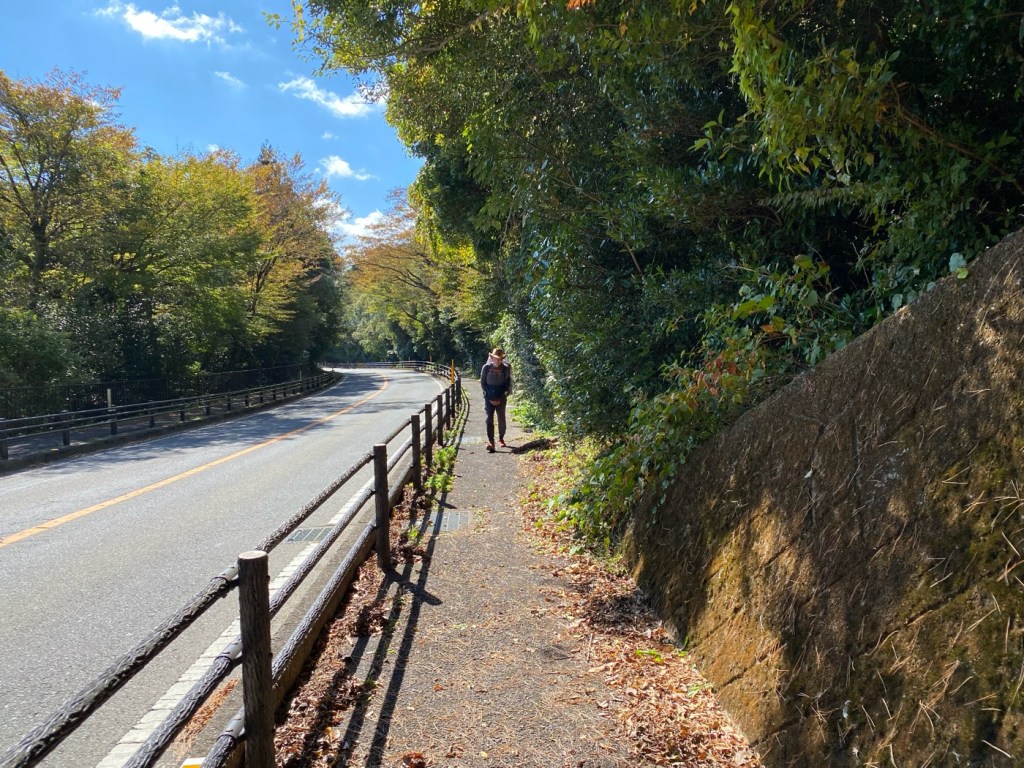
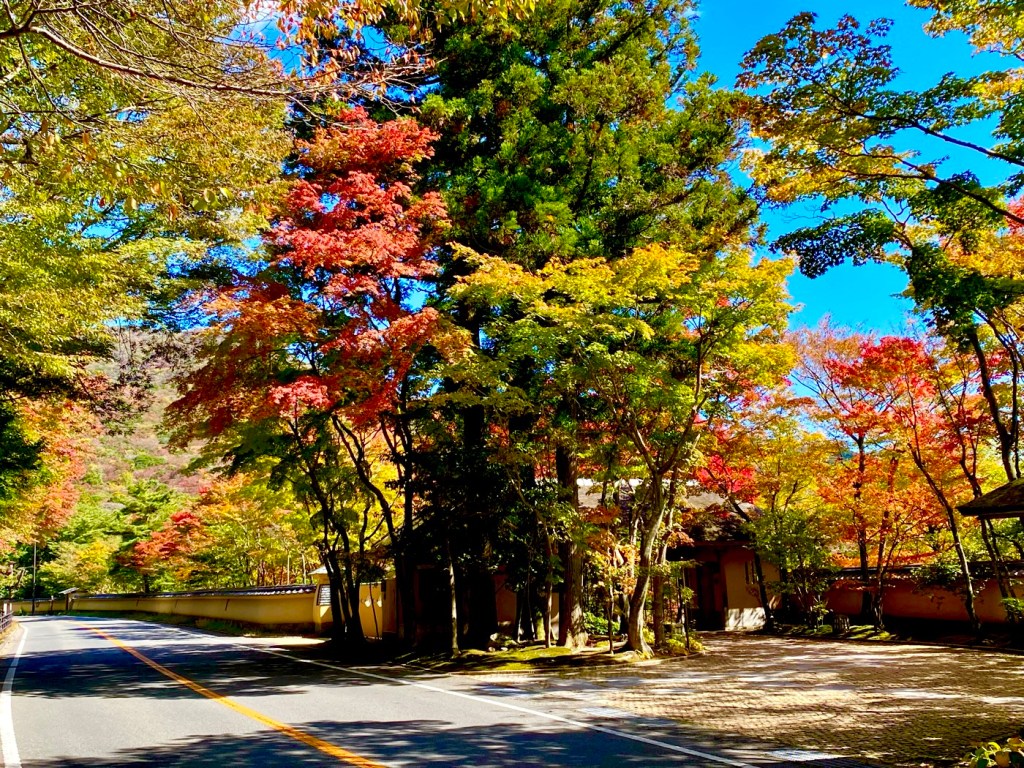

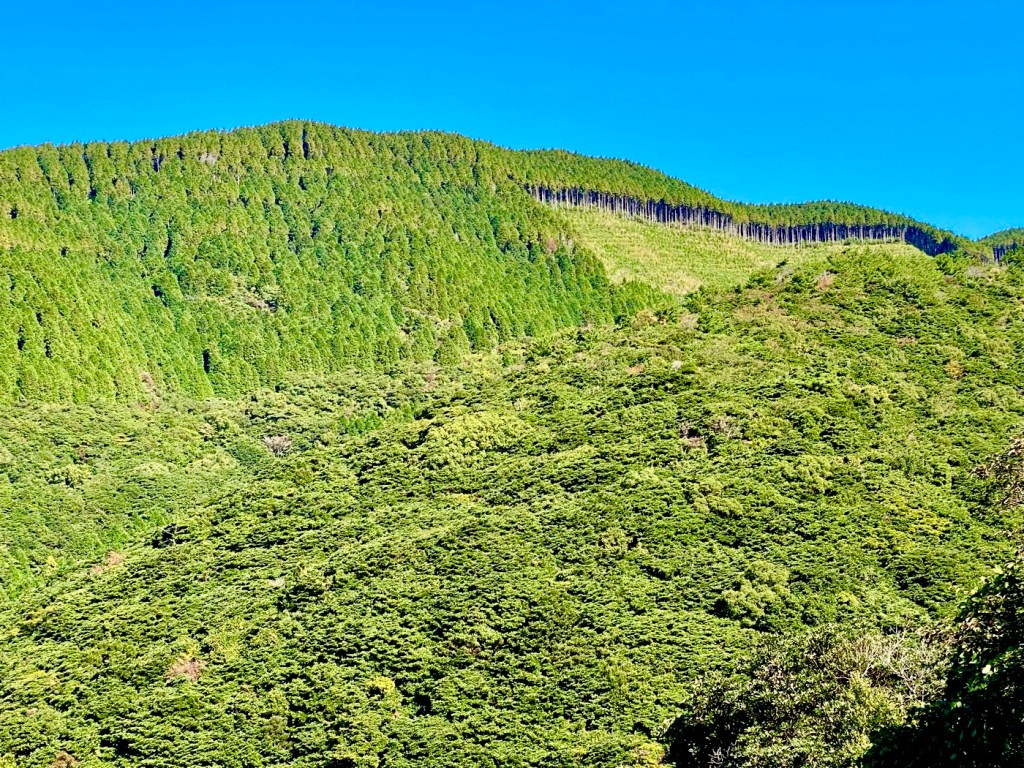
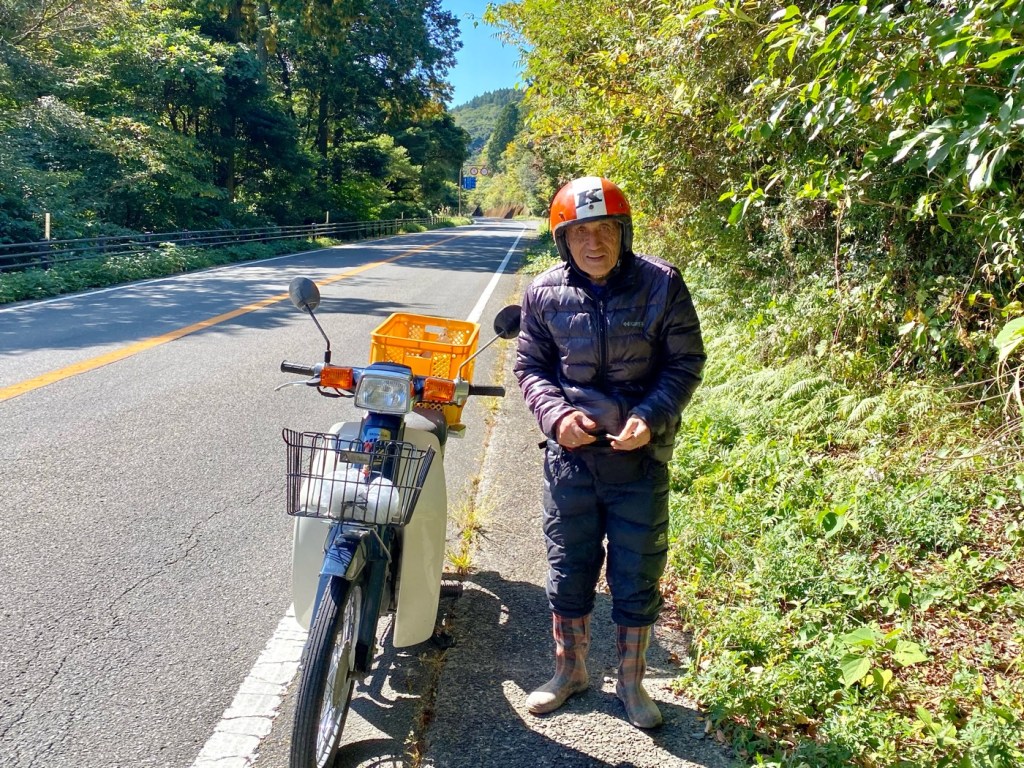
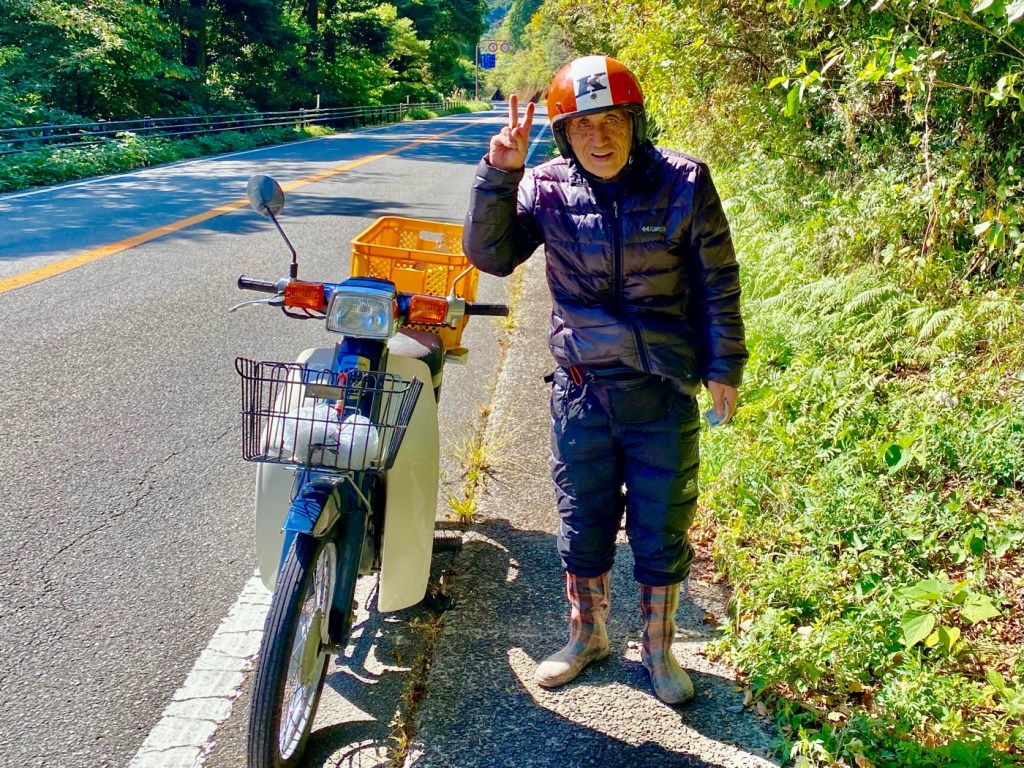
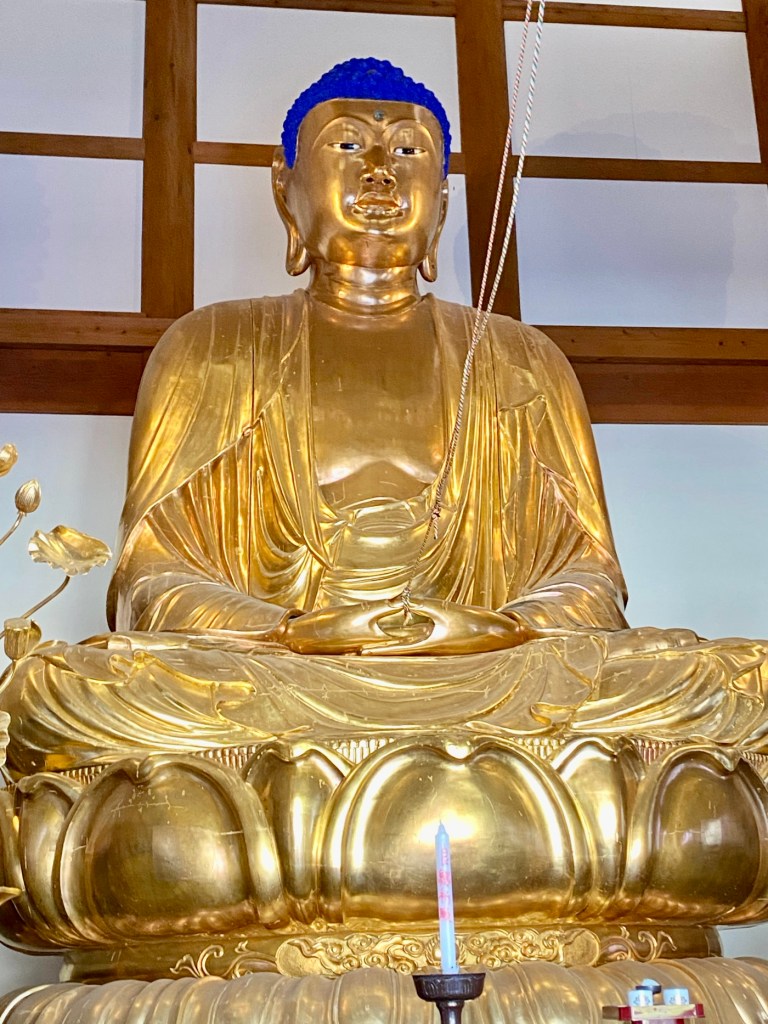
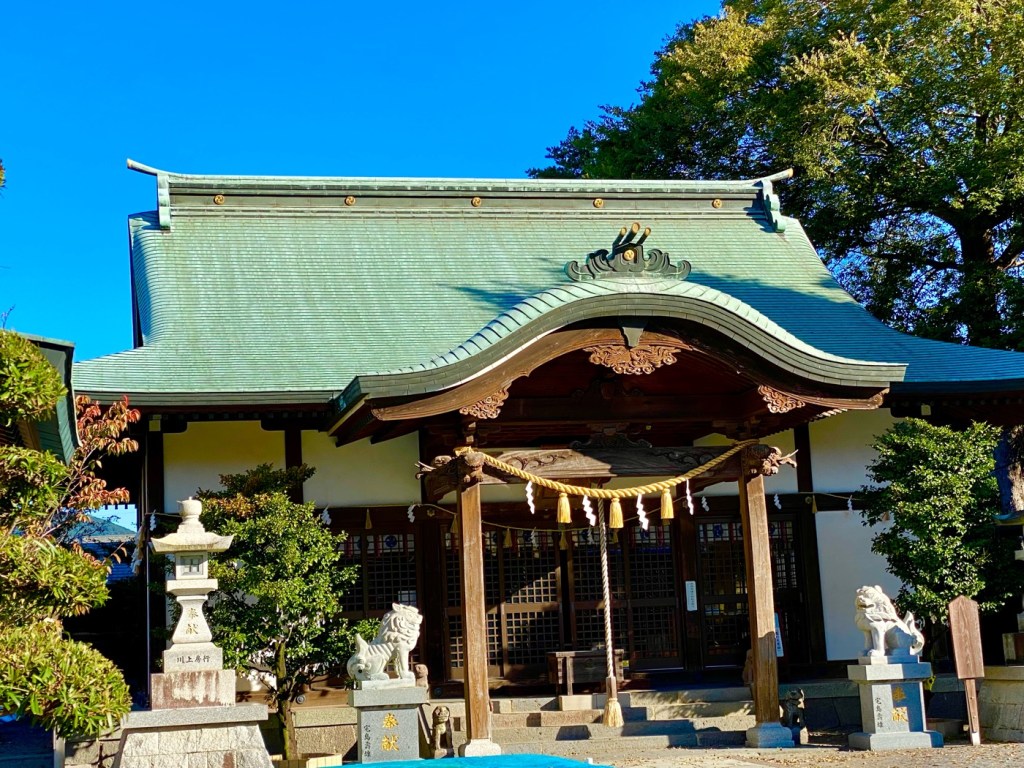
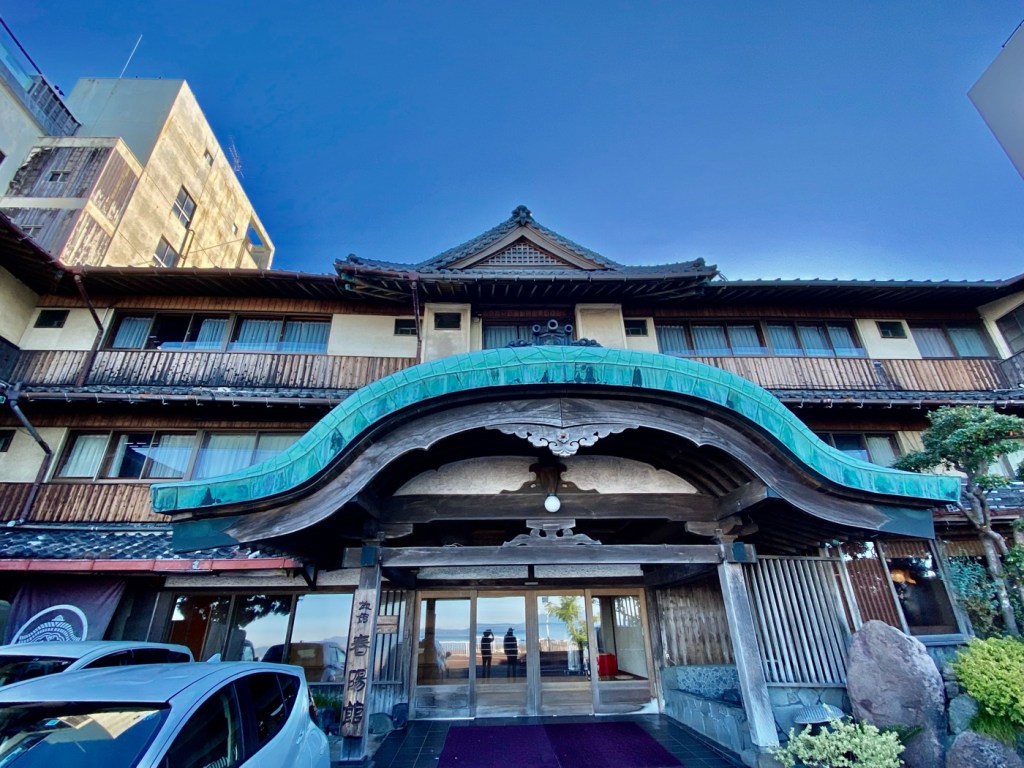
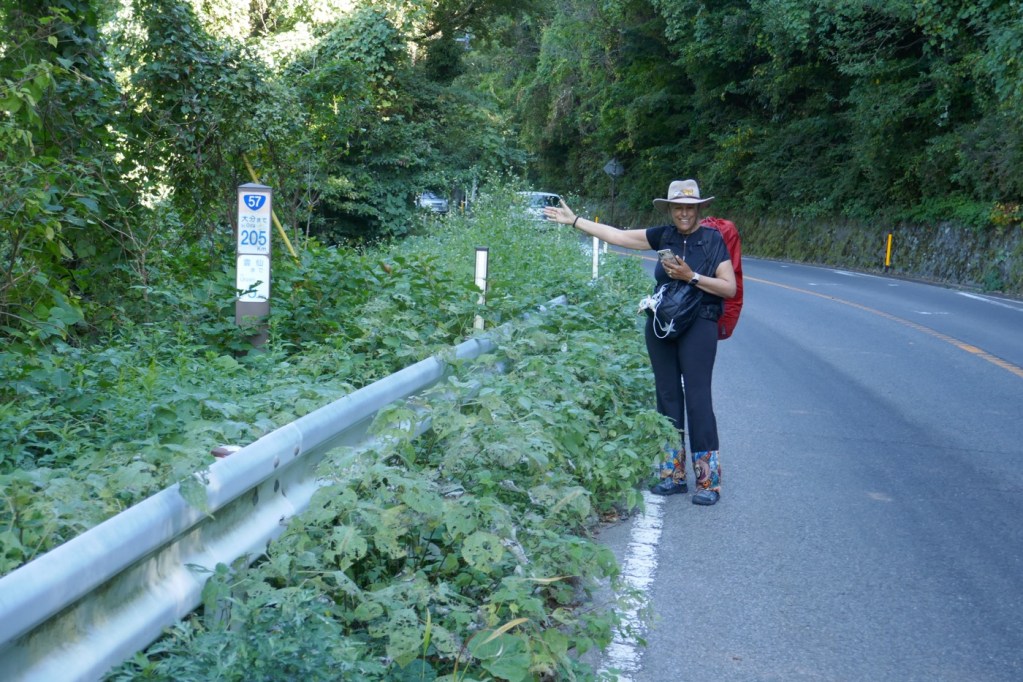
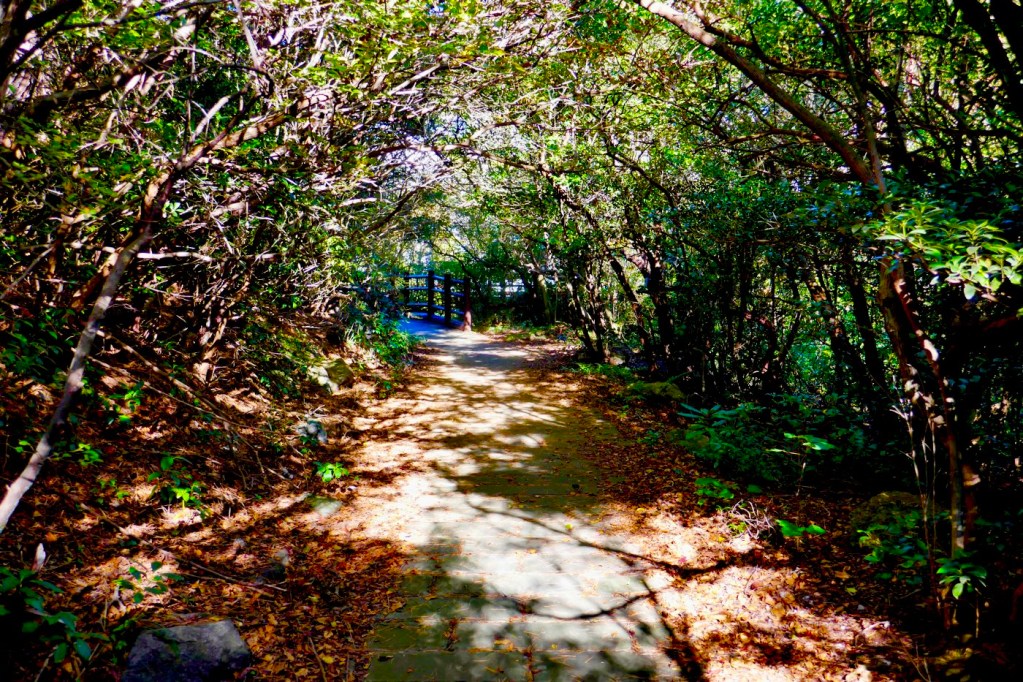
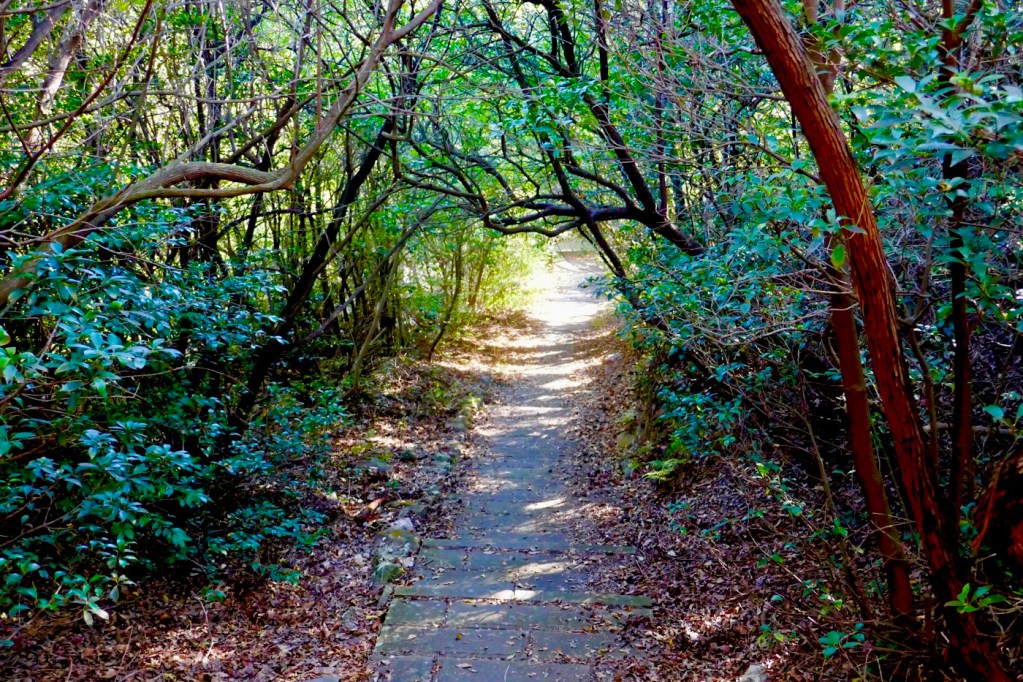
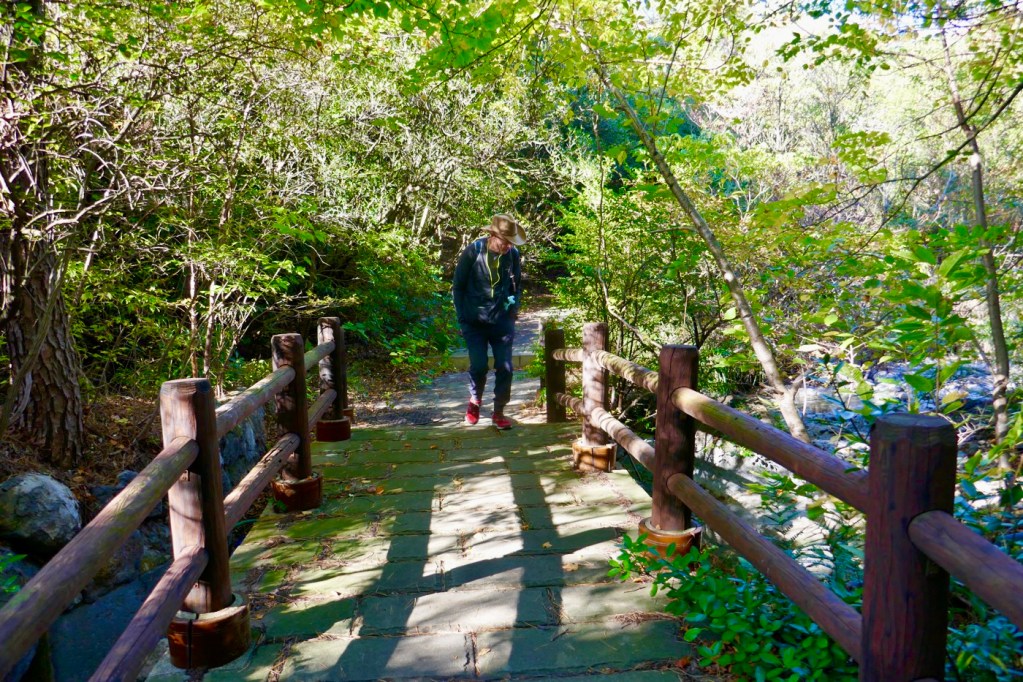
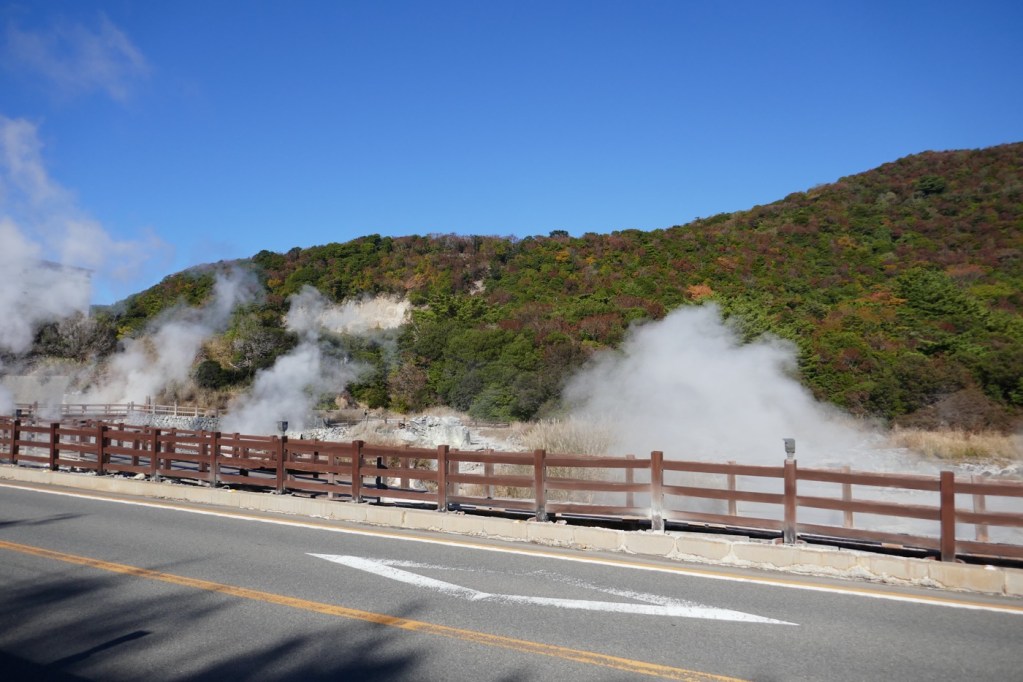
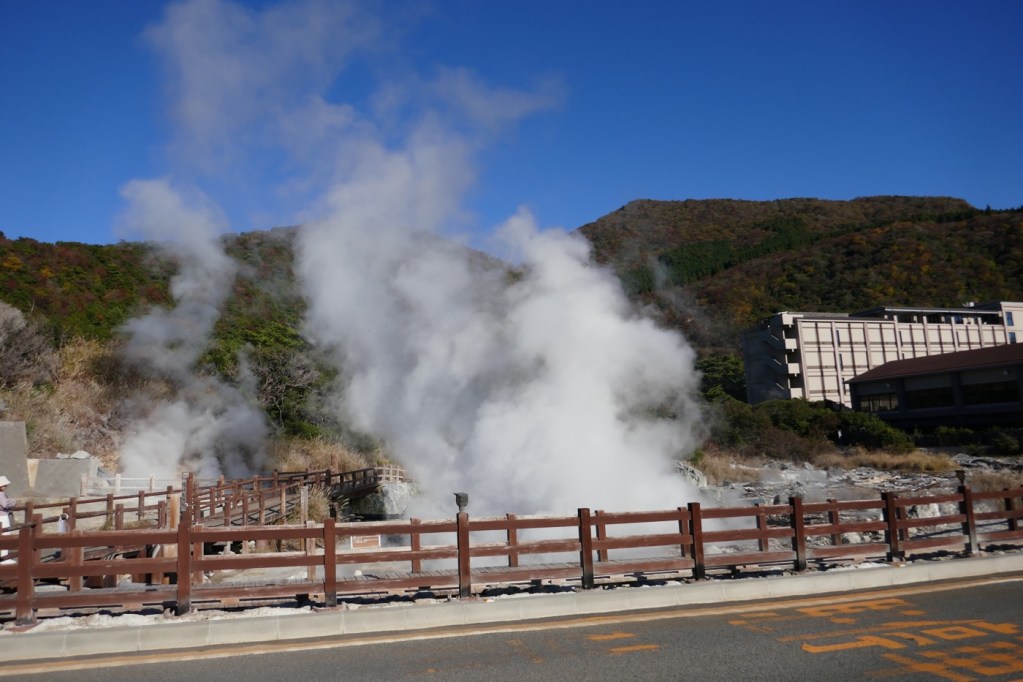
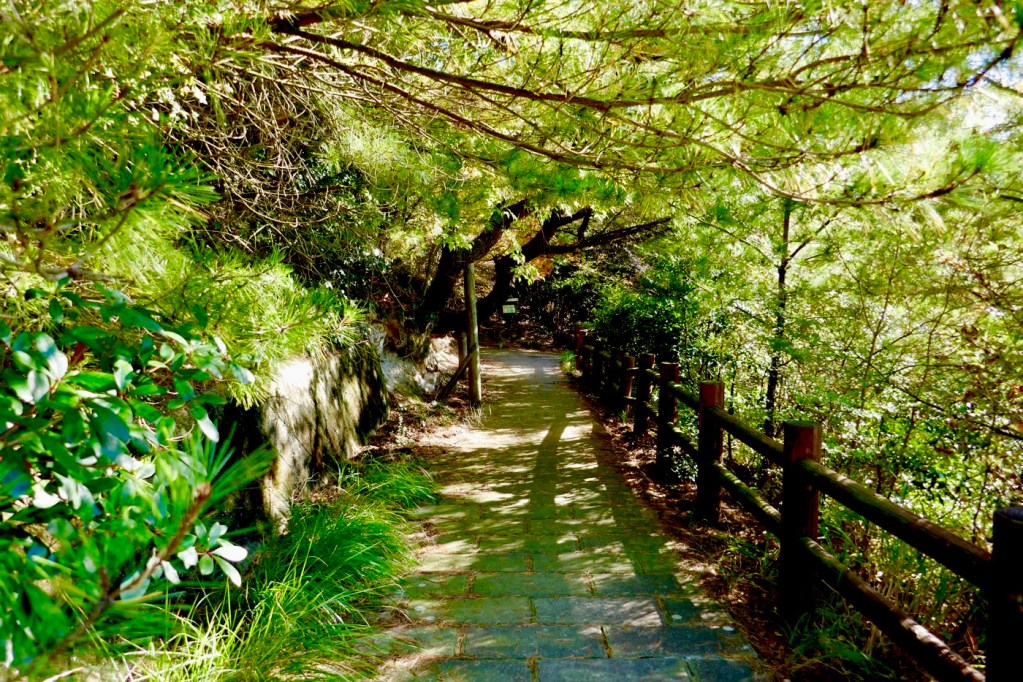
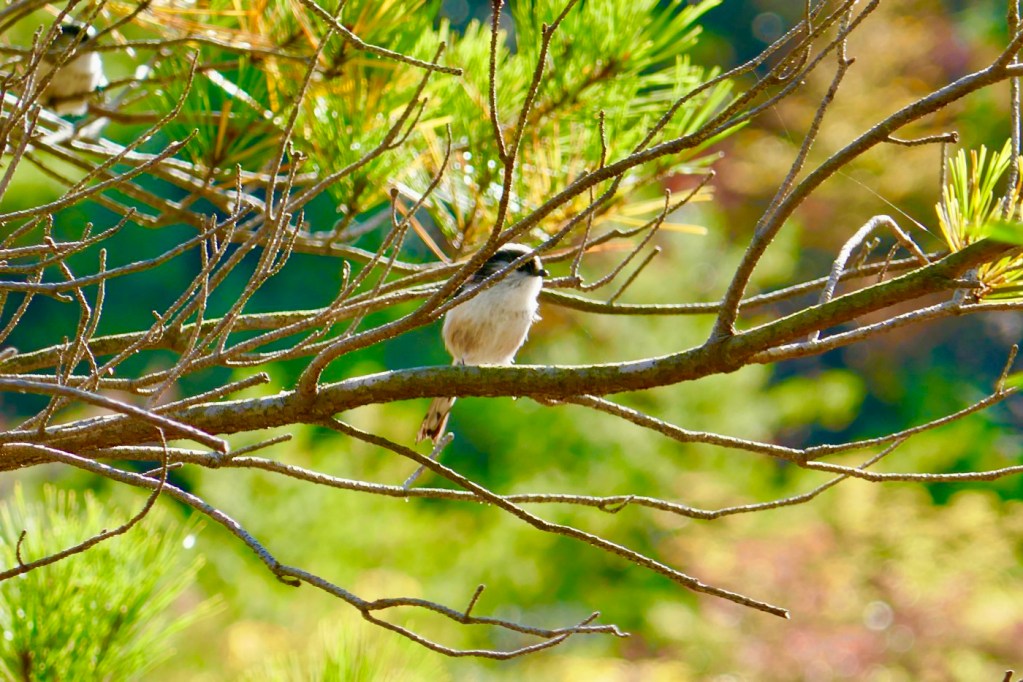

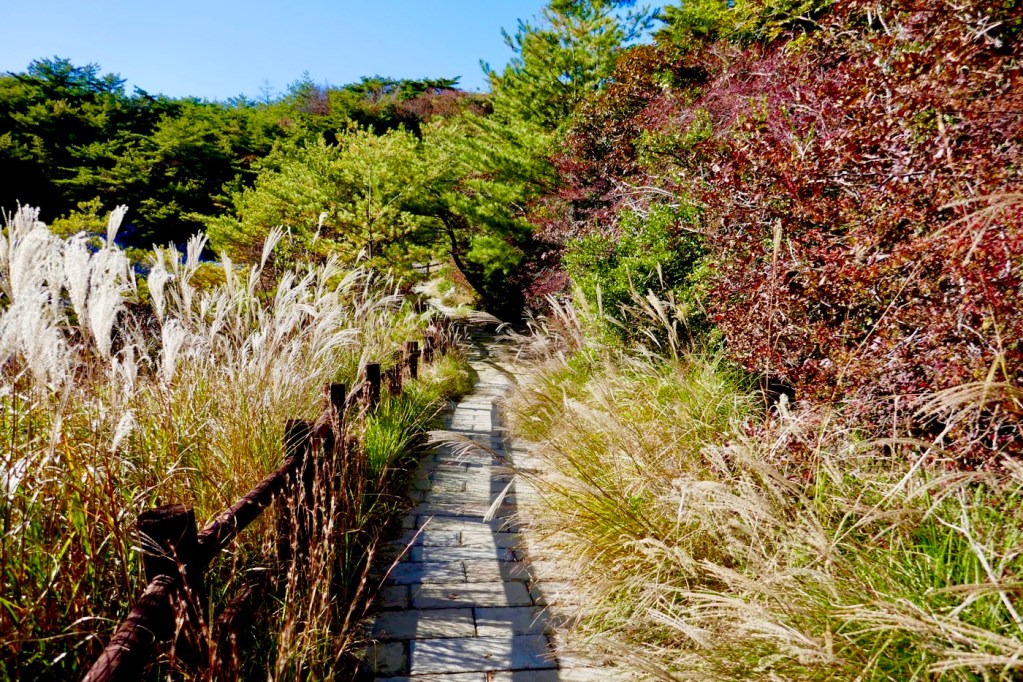
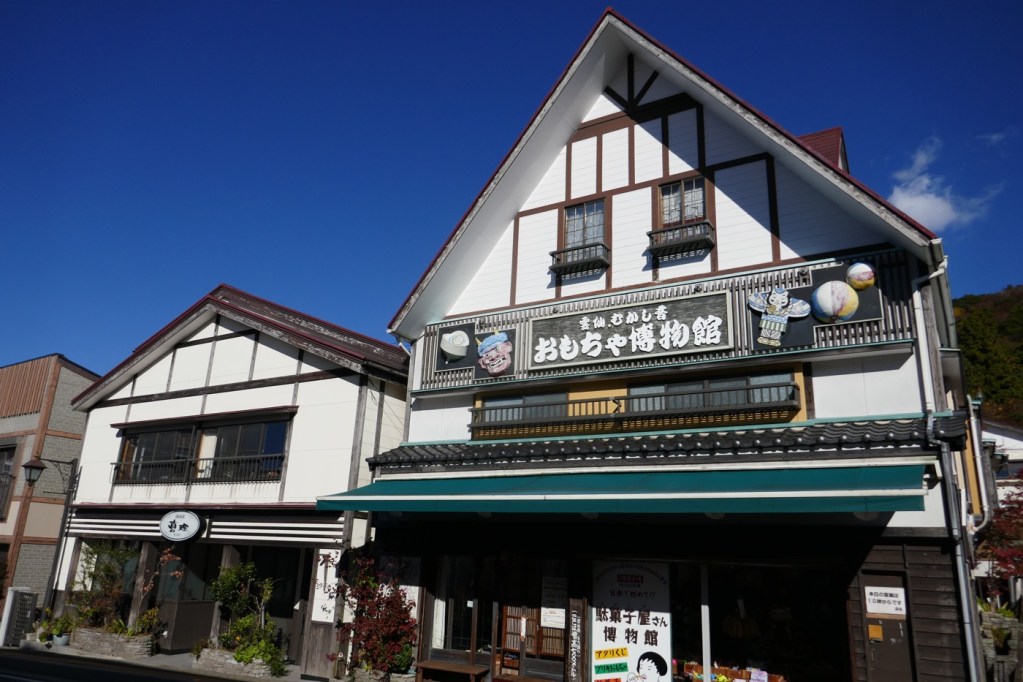
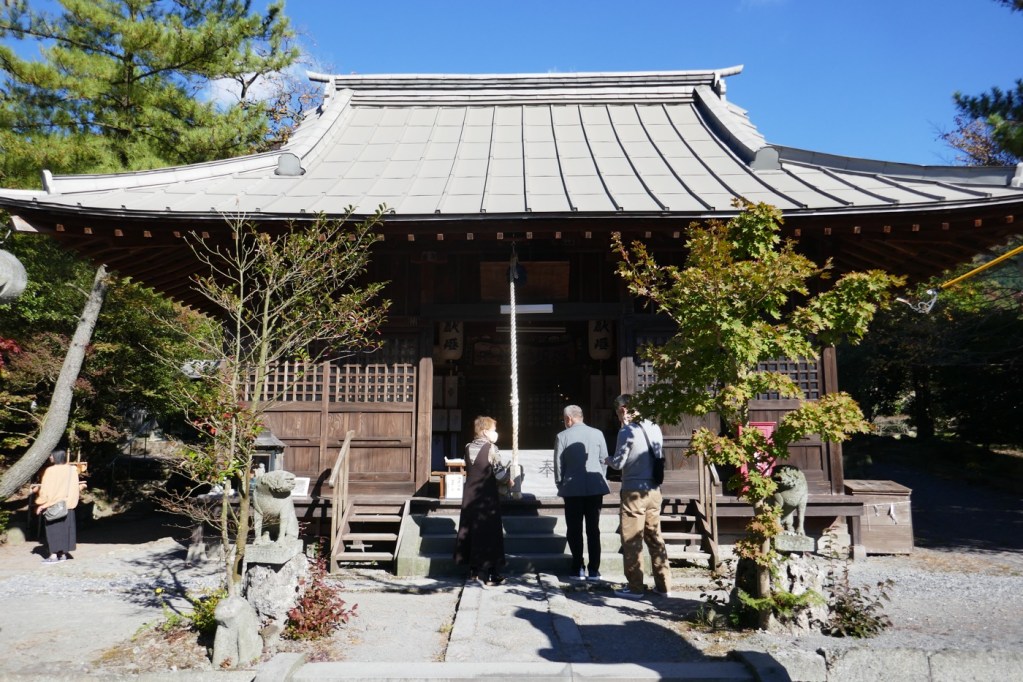
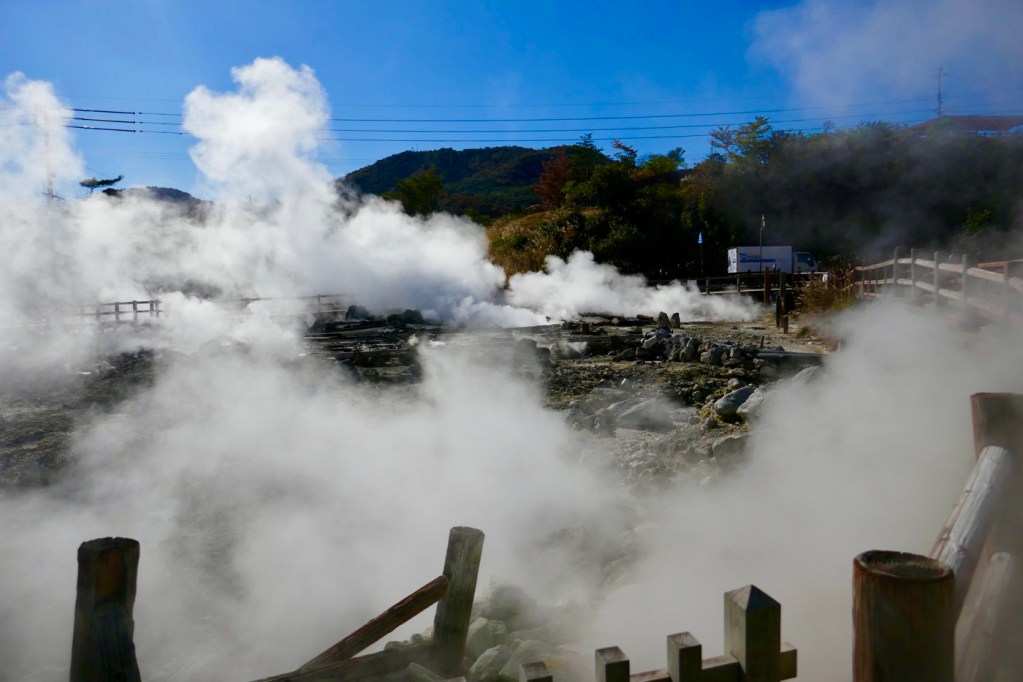
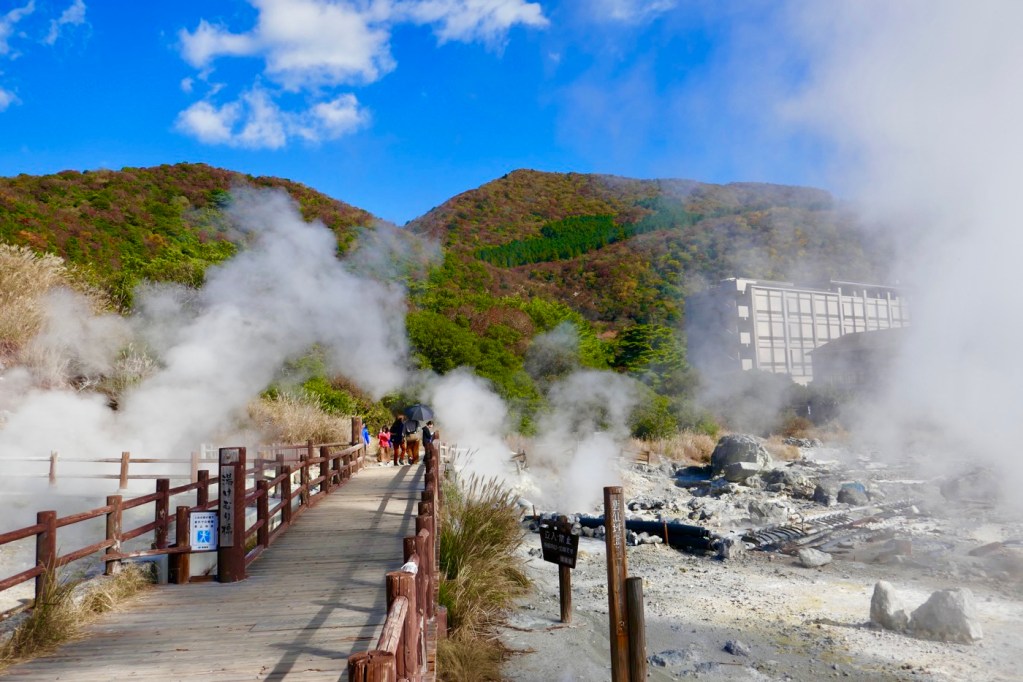
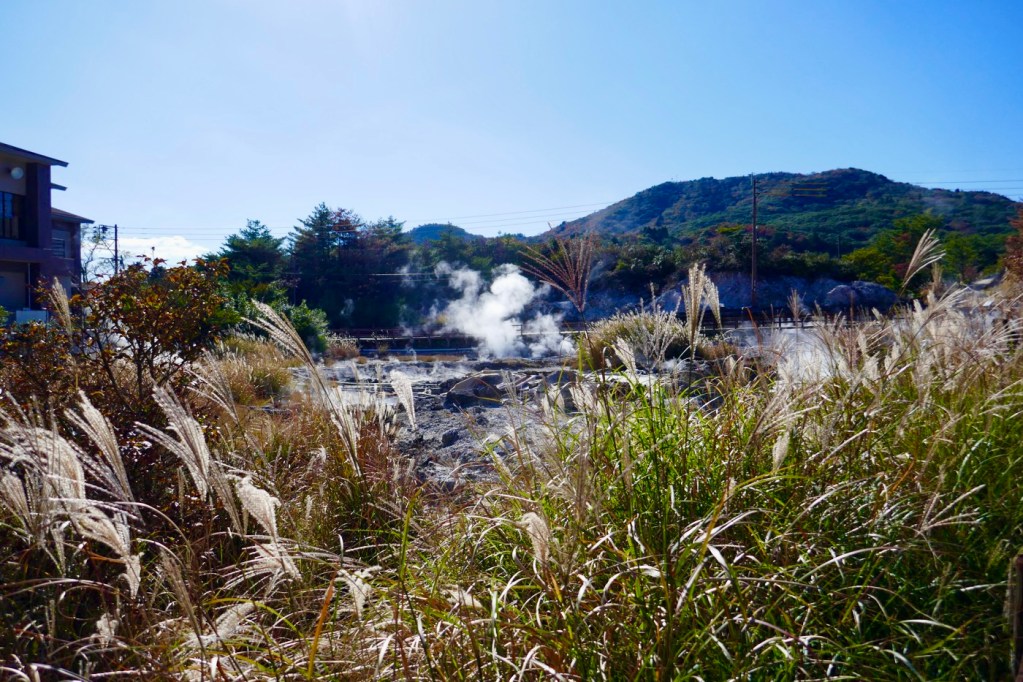
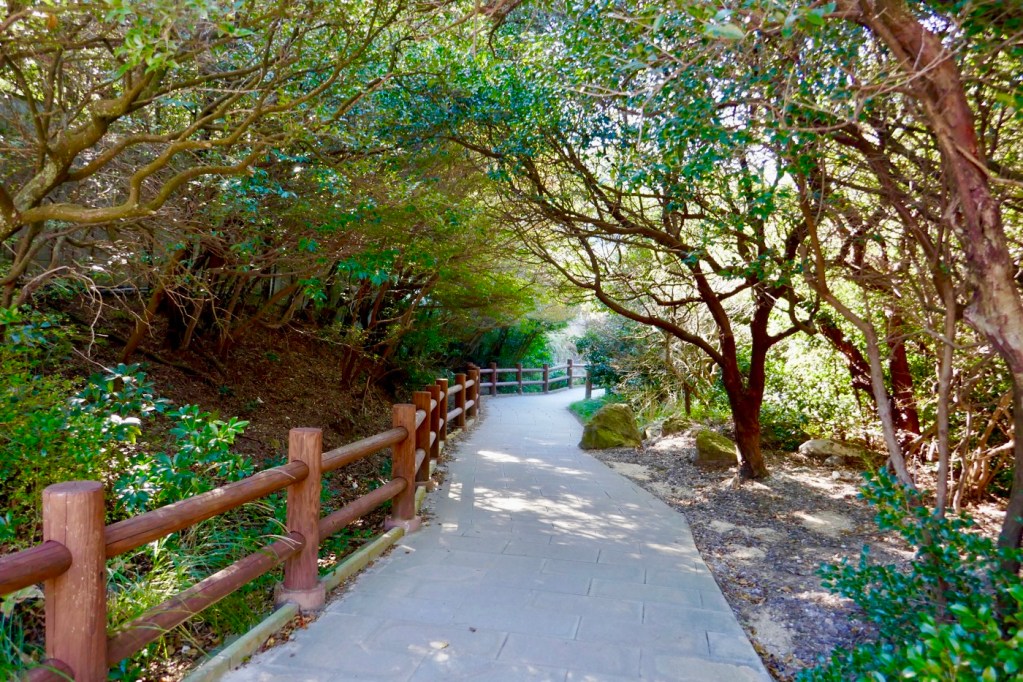

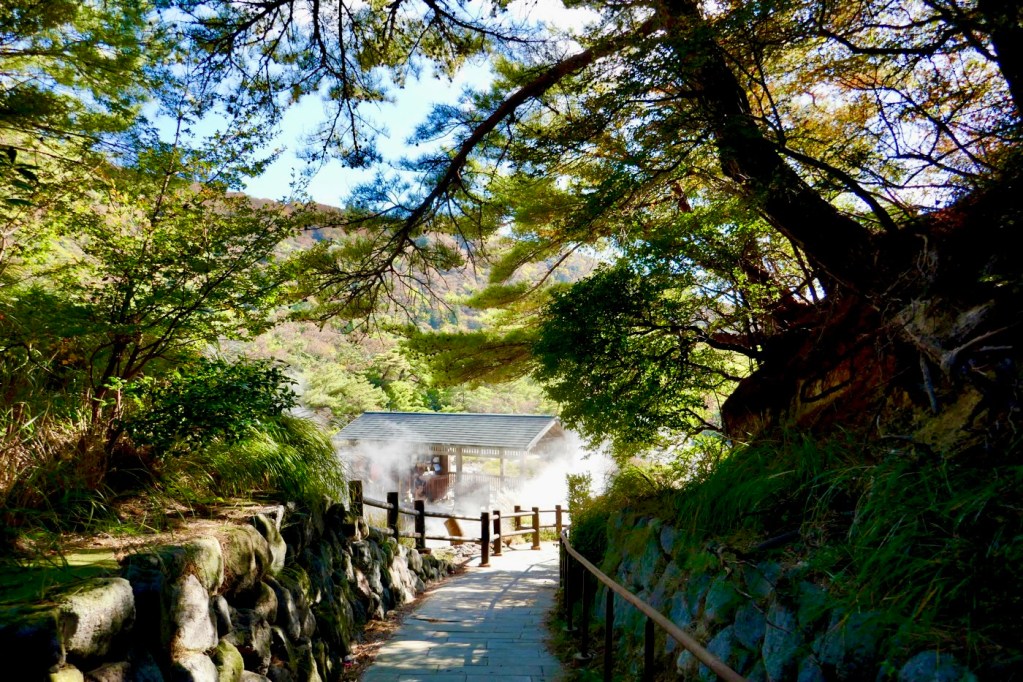
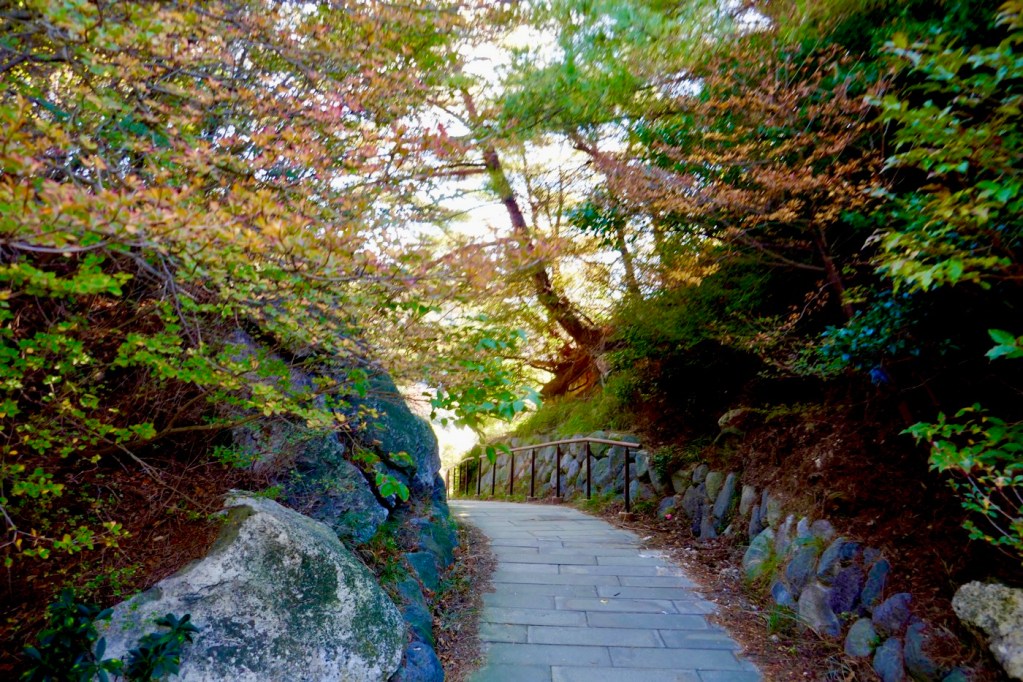
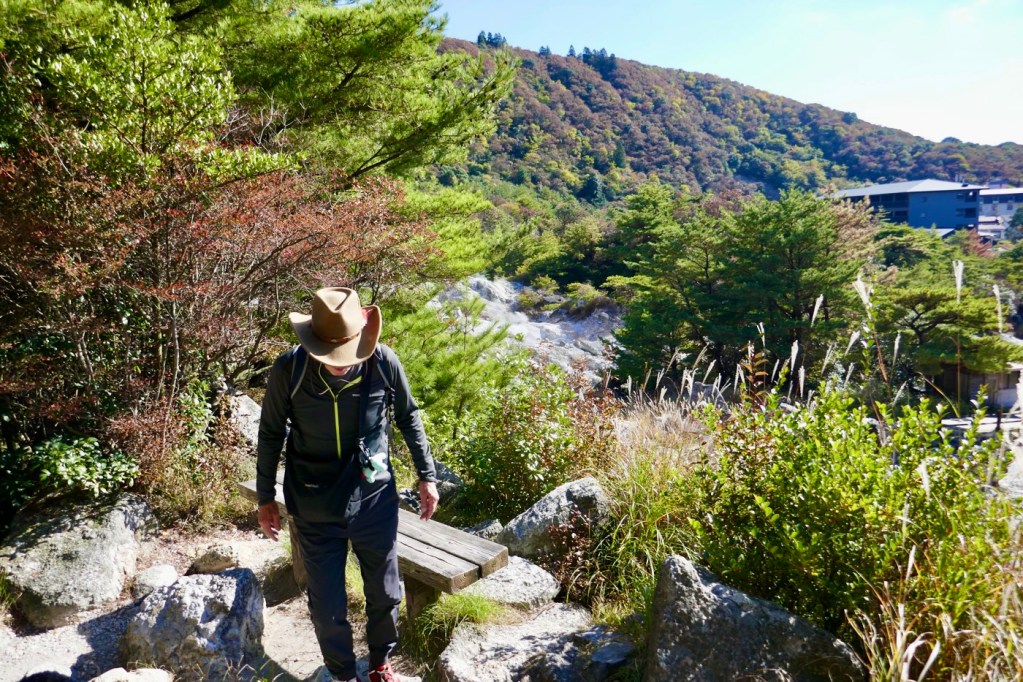
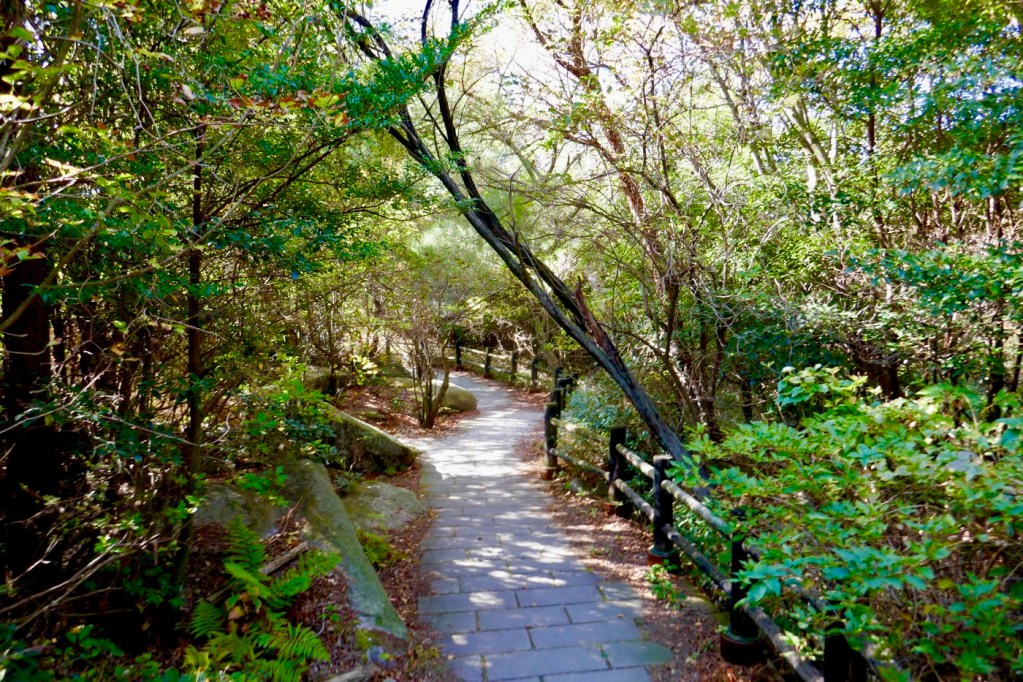
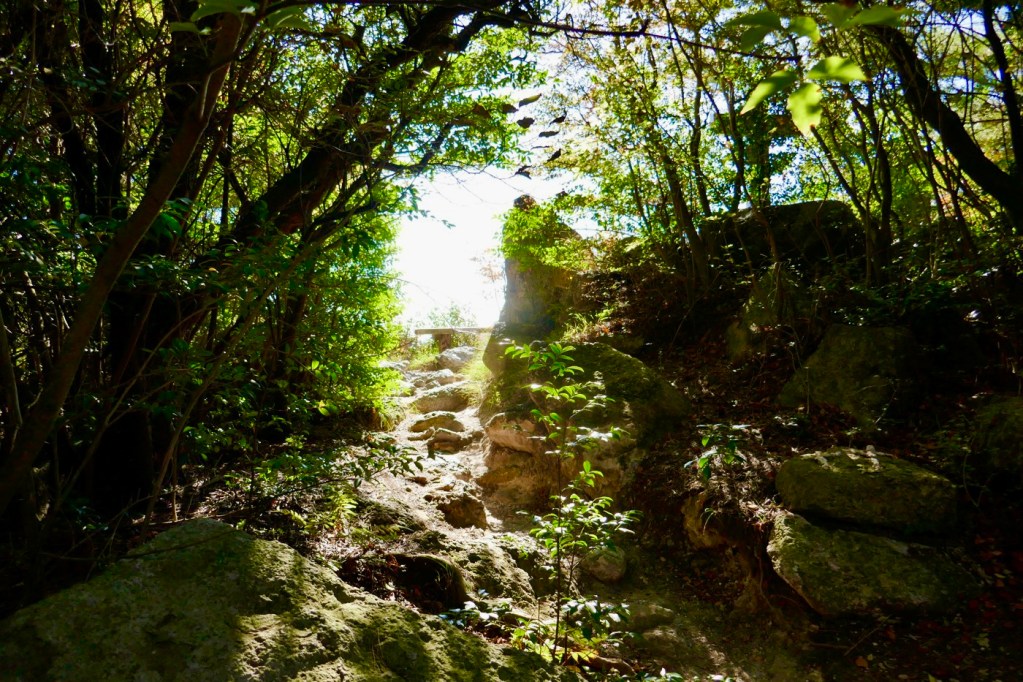
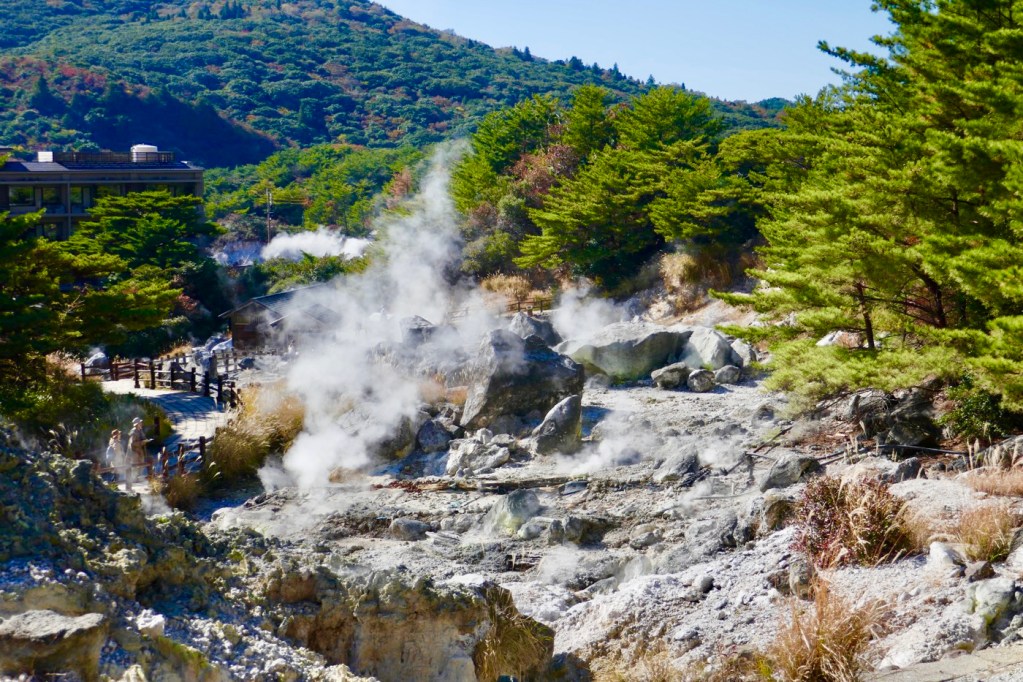
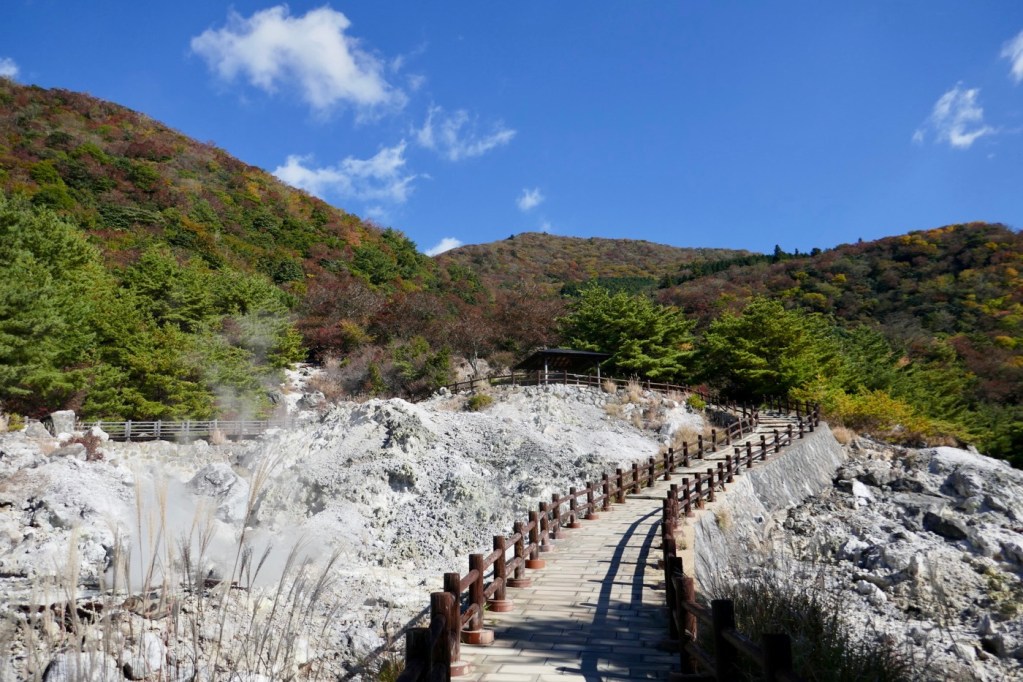
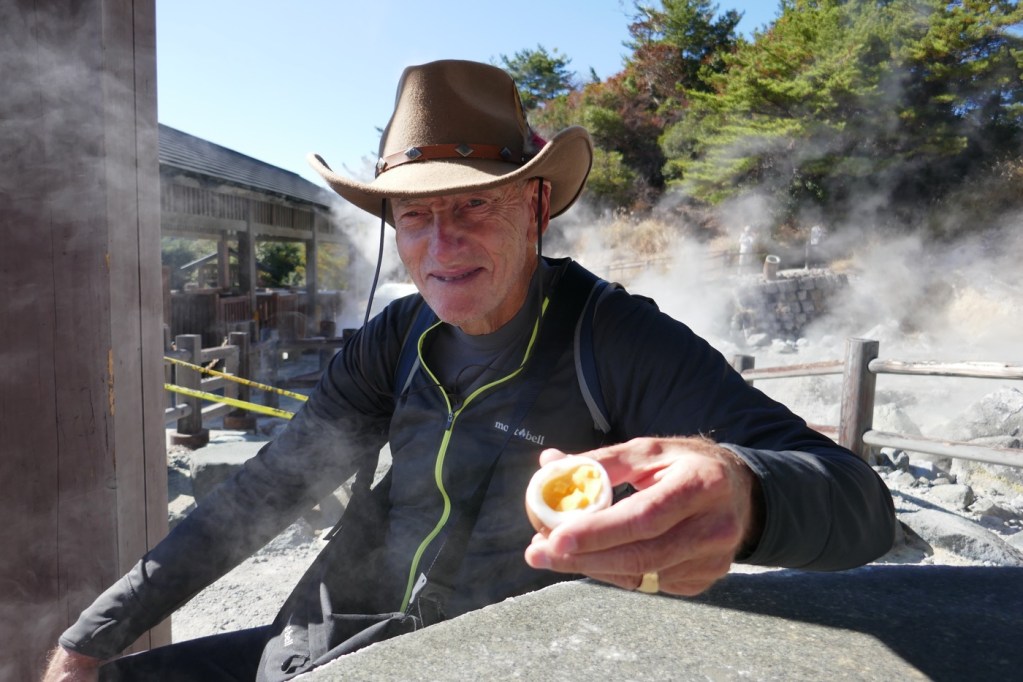
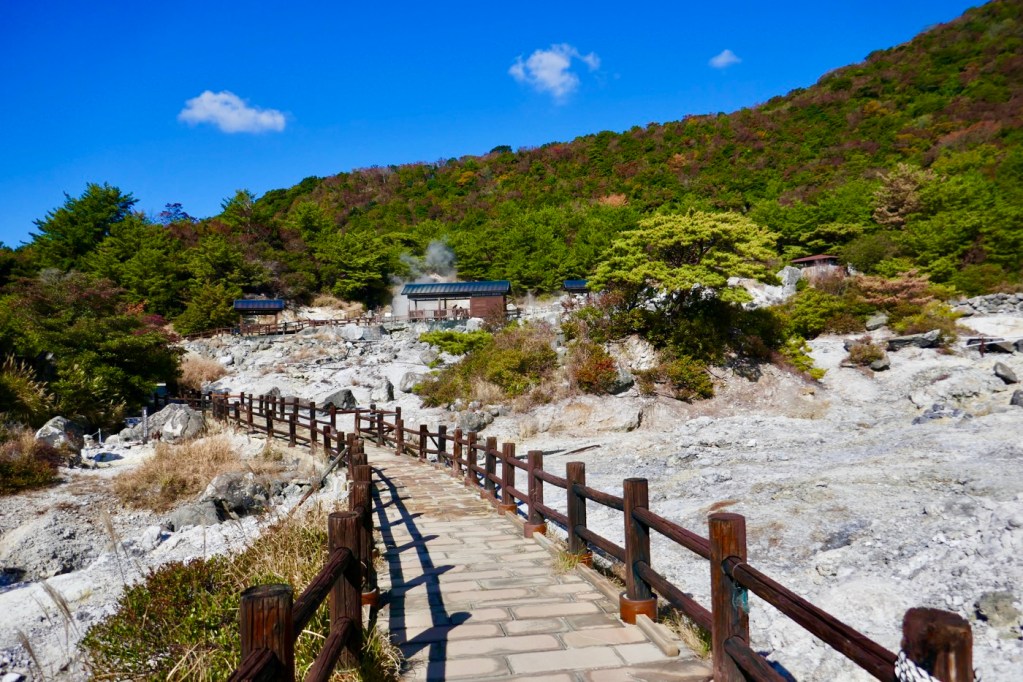
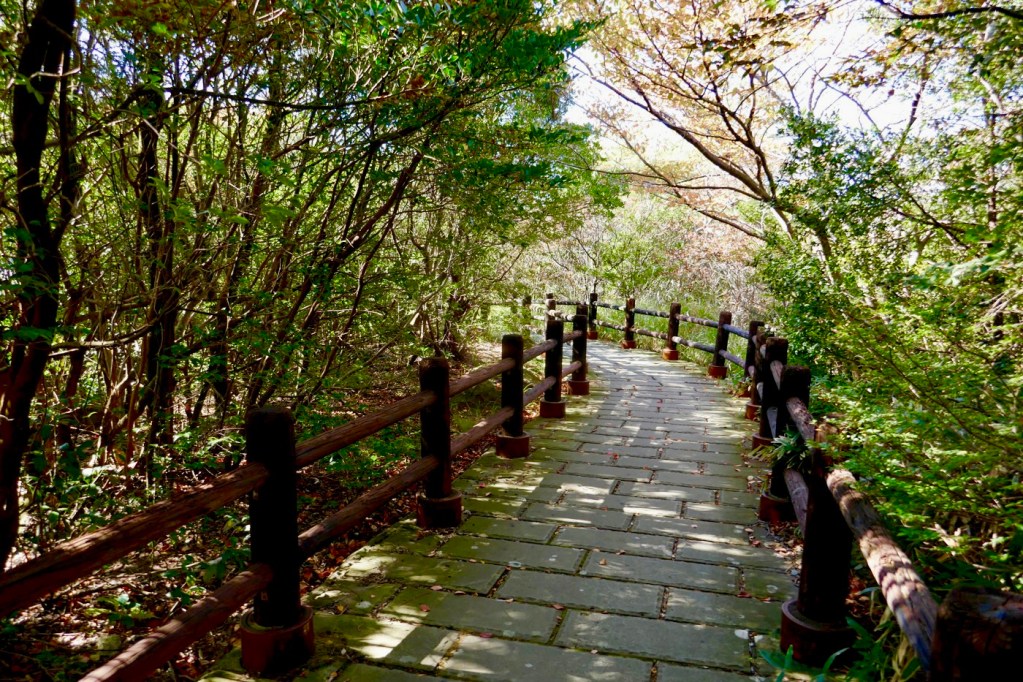
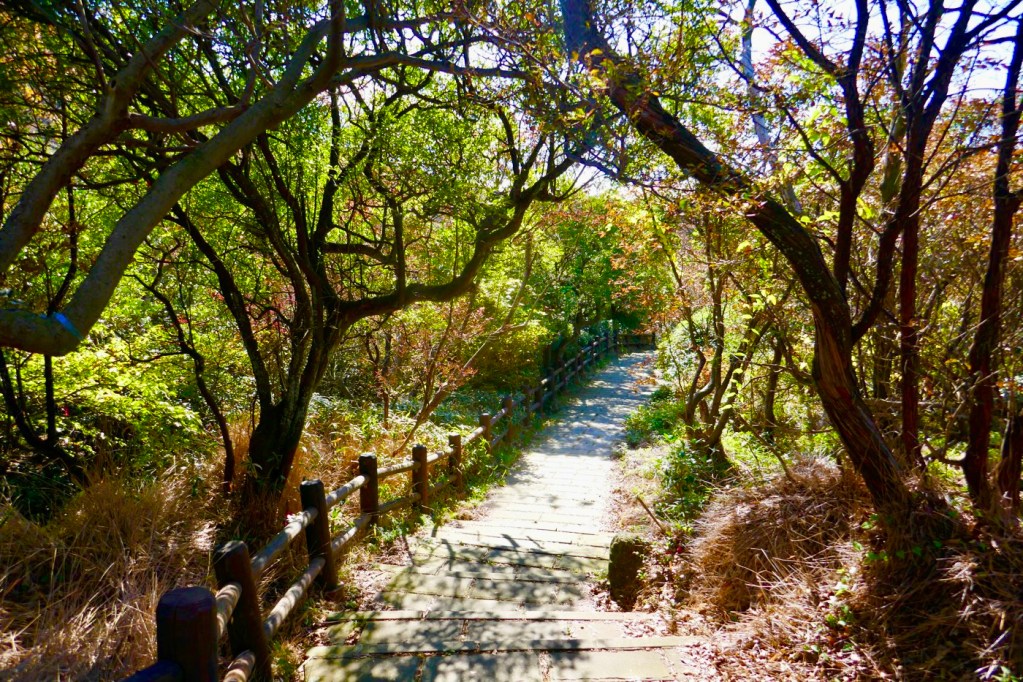
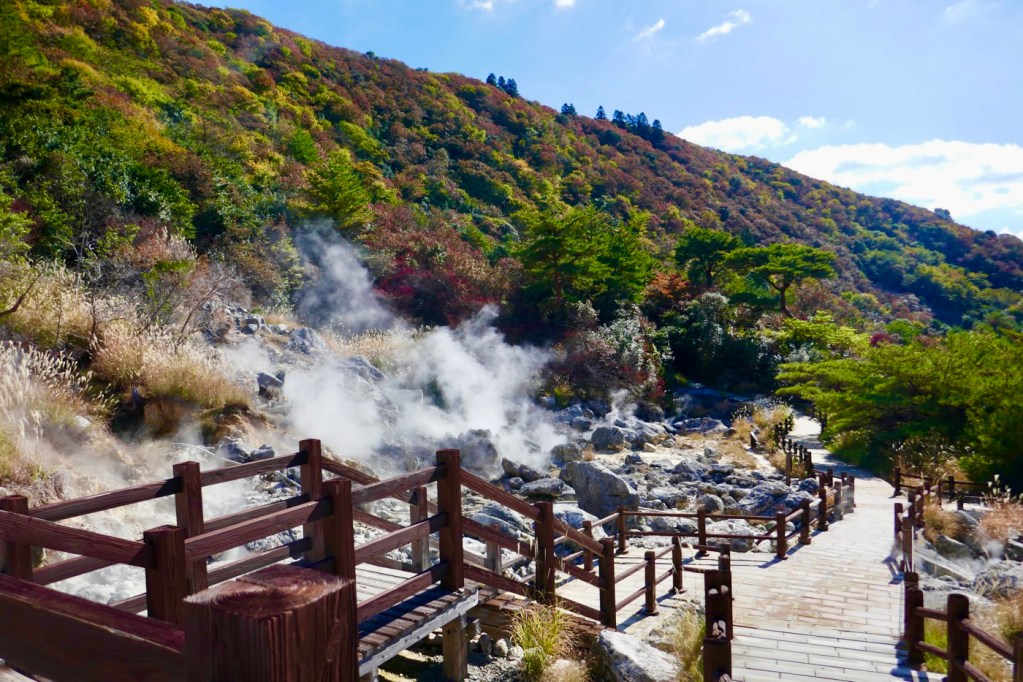
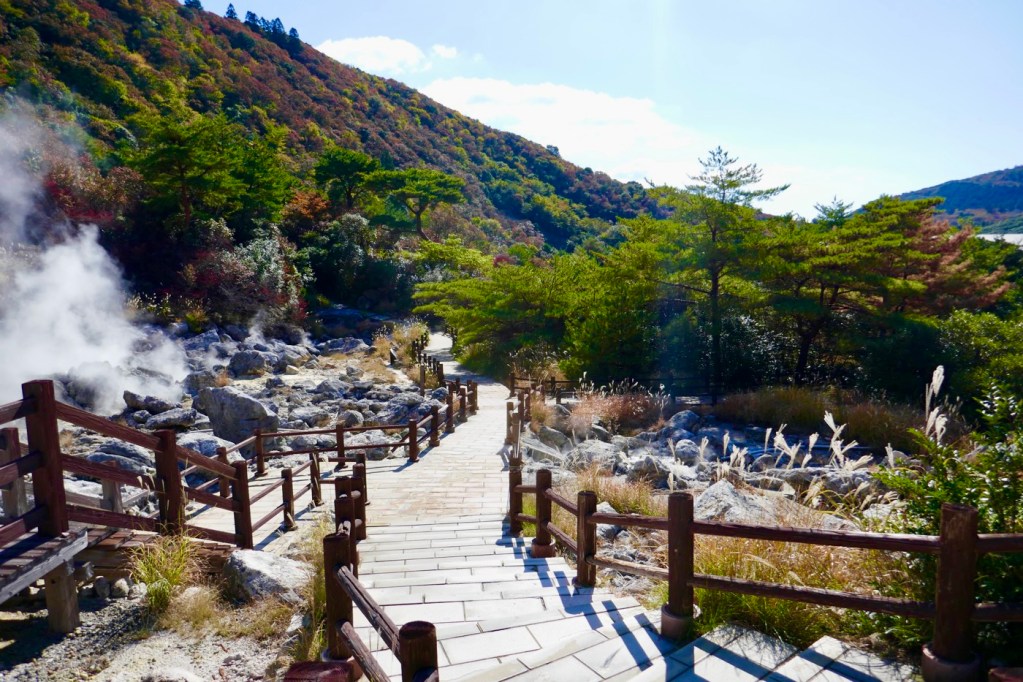
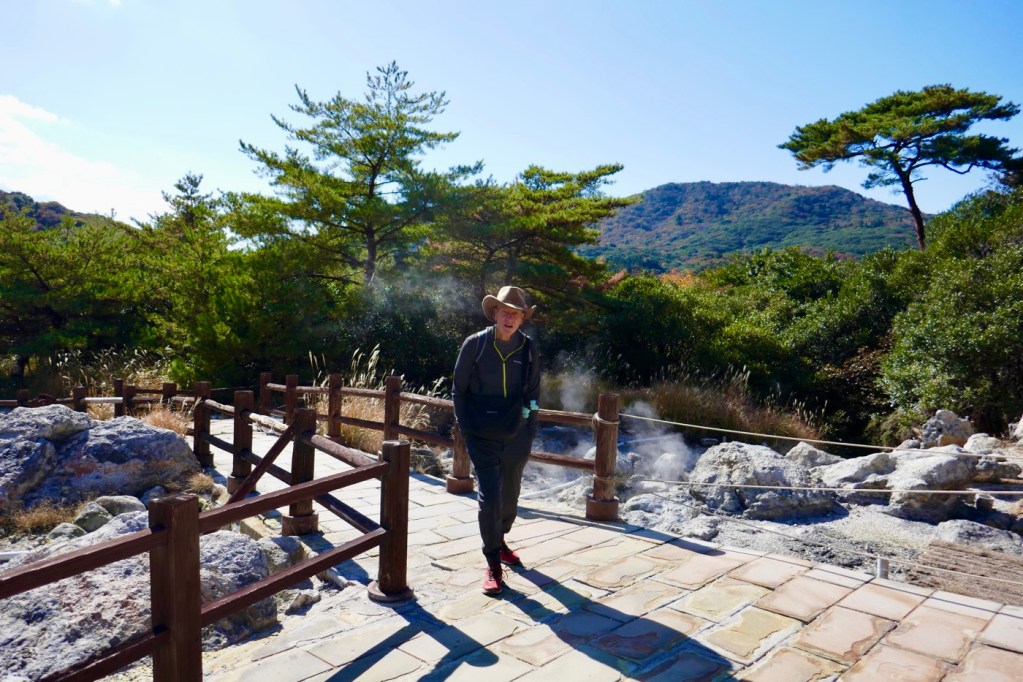
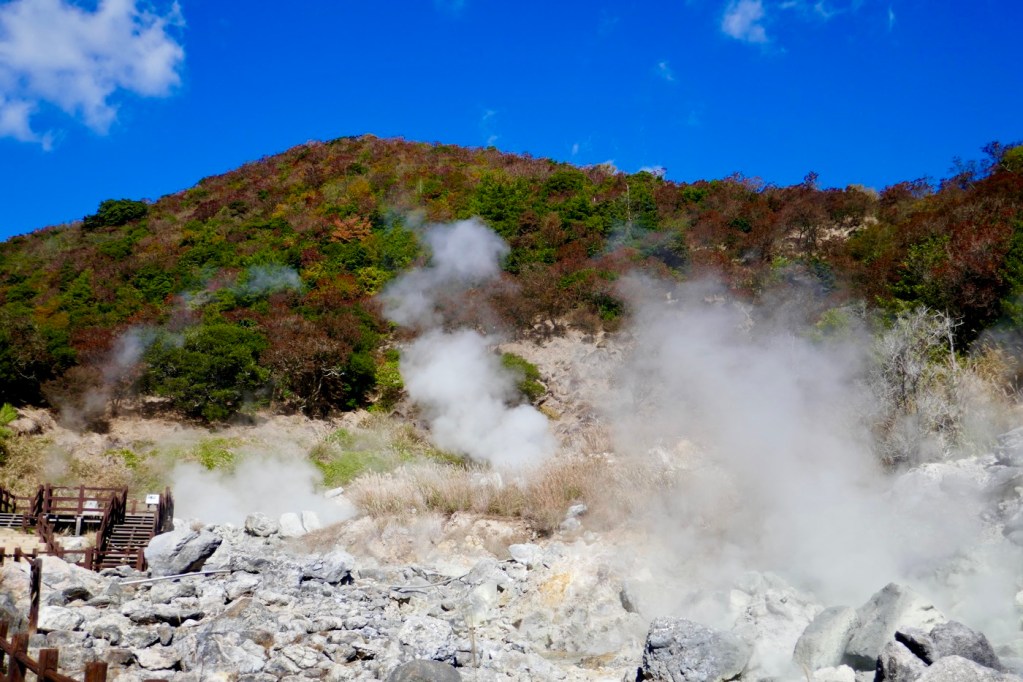
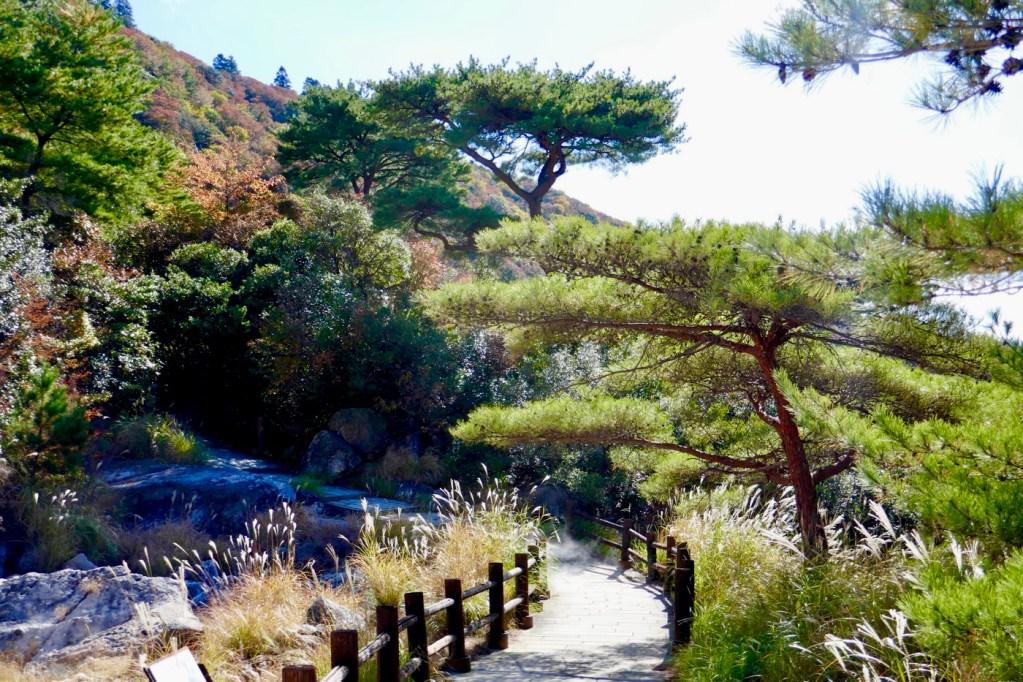
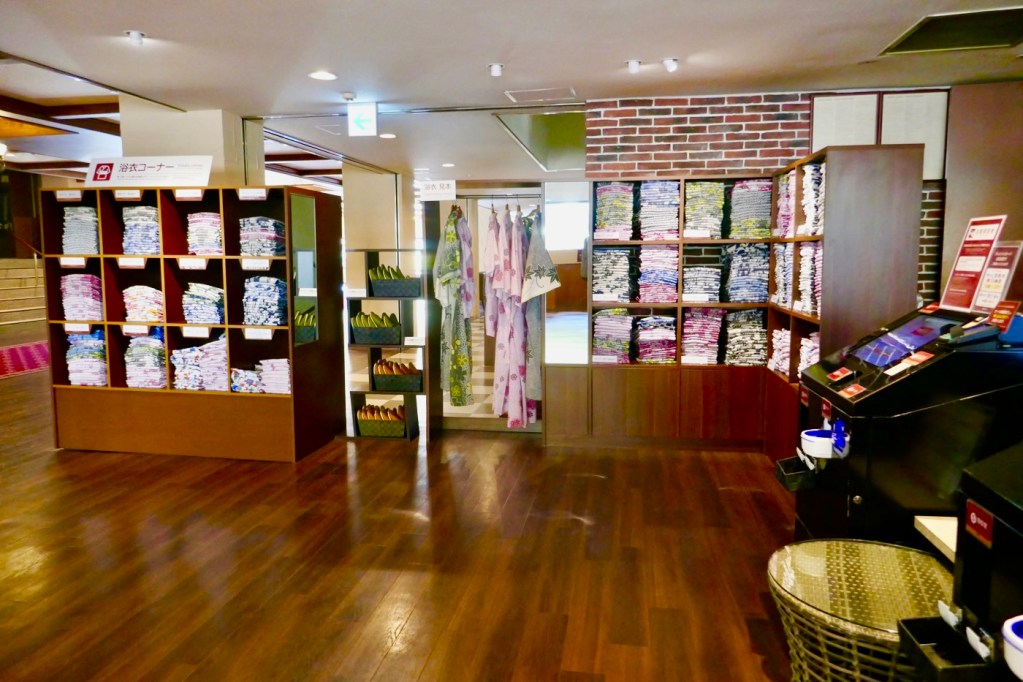
Day 36 - Climbing A Volcanic Mountain To The Amazing Unzen Onsen, The Kyushu 108 Temple Pilgrimage, Japan
Unzen Volcano is one of the most active volcanoes in Japan.
The volcano was very active recently, from 1990 to 1995.
In 1991 a big eruption buried houses to the east, near the big city of Shimabara, which we will walk to tomorrow.
We got ready for a day of climbing by packing in our big backpacks some bananas and persimmons along with some cookies and crackers.
The walk was going to be a constant climb from sea level in the town of Obama, to a height of about 750 meters (2460 feet), to reach our Onsen hotel in Unzen.
Breakfast in our hotel in Obama was a traditional Japanese breakfast, except they also served all sorts of tiny fish that were pickled, mixed with miso paste, or cooked with soy and mirin.
We also got a small grill to roast the nori seaweed sheets and to grill Aji (small local fish) to eat with our rice.
We thanked them and strapped on our backpacks, getting ready for the day.
The climb started right behind our hotel.
The pedestrian alley was so steep, we couldn’t believe someone could walk on these roads when it rains. It would be like a slide in a kid’s playground.
Climbing such a steep, narrow road with our heavy backpacks was not easy, but soon we joined the car road which was also steep, but had a more gradual incline.
When I found myself struggling with the uphill climb and the heaviness of my backpack, I reminded myself to walk in gentleness and in love, which produced a sense of ease in me, instead of thinking about power and strength, which seemed to create a sense of grind and grit and made me tired.
I think that when we are doing something that is hard and difficult, it is best to remind ourselves to feel a sense of ease and gentleness, instead of relying on muscle power and telling ourselves to push on beyond the pain.
Well, at least it works better for me!
My spirit was elevated by the beauty of the scenery.
We walked through a few beautiful mountain villages, thick forests, with beautiful autumn colors everywhere.
We stopped to rest in a mountain temple that was actually set up as a memorial shrine called Inori no Sato (いのりの里) which means “A Village Of Prayers.”
On June 3, 1991, Mt. Unzen Fugendake erupted, and 43 precious people (because ALL people are precious), including local firefighters, police officers, journalists, and foreign volcanologists, lost their lives.
The Fukae Town Elementary School was destroyed by the hot wind and extreme hardship was created in the area.
Overnight, the entire Mizunashi River basin area turned into a vast wasteland of gigantic fallen rock, mud, and ash.
Before resting to have our tea break, we bowed before the statue of Jurojin, one of the seven gods of good fortune.
The Seven Lucky Gods, also called Shichifukujin, are a perfect example.
You will find them worshiped in Japanese temples and shrines and each god is worshiped for a specific reason.
Jurōjin is worshiped as the god of longevity.
Jurōjin was born in China and made many long pilgrimages around the country, carrying everything in a large bag.
Carrying our heavy backpacks on a long pilgrimage up a steep volcano, I have a lot of respect for Jurōjin and his endeavors.
Jurōjin was known as the Old Man of the South Pole, and one of the immortals of the Northern Song dynasty (960–1127).
We took off our backpacks and sat inside a shaded pergola that also housed a huge dragon holding the golden pearl of wisdom in his claws.
The sign by the dragon said:
“Since ancient times, the dragon has been a symbol of endurance and overcoming sufferings, as well as carving out your own destiny and bringing to you your own good fortune.
The dragon symbolizes victory.
This victory is not over others or a victory in war, but a self-victory or self-mastery.
Your own daily decisions bring you small successes that build up your character and shape you into a person with greater endurance, inner strength and with a peaceful heart.
The dragon is the god of success and advancement, who helps you achieve courage, wisdom, power and success.
As you talk to this dragon god, you will feel a strong correlation between the energy of the Universe and your own life energy.
You will be given the power to cut off all evil thoughts that exist in the phenomenal world.
To pray to this dragon god: please bow twice, clap your hands twice, and bow once again.
A dragon can transmit your dreams and wishes to the fourth dimension and bestow divine power on you to improve and strengthen your life.
This Dragon God is one of the Eight Great Sacred Sites that traces through the life of Buddha.
It is said to be the incarnation of Hadoryu (Katsu), one of the nine dragons that appeared to the Buddha to help him empathize with people's suffering and hardships.
From the divine Buddhist realms, it can bestow the power to dispel the seven human hardships, and is said to bestow strong vibrations to help in good matchmaking.
The seven sufferings are:
(1) Suffering of Birth (both for mother and child).
(2) Suffering of Old Age.
(3) Suffering of Sickness.
(4) Suffering of Death.
(5) Suffering of being apart from the loved ones.
(6) Suffering of being near those you dislike.
(7) Suffering of unfulfilled desires and not getting what one wants”.
After drinking our tea, we walked around the grounds and looked at all the statues and the big red Tengu mask placed around the shrine.
Finally it was time to keep climbing.
We had no sidewalks, but for most of the climb, not many cars were on the road.
We saw signs of wild boar and many empty chestnut husks on the ground by the side of the road.
It was a difficult climb to do with our backpacks, but slowly we made our way up.
A very skinny old man wearing puffy pants and a puffy coat, passed us, riding on a very slow motorbike.
A bit up the road, he stopped and got off his bike.
He squatted by the side of the road, and for a moment I thought he was peeing, but soon it became obvious he was waiting for us.
When we arrived, he asked me where we were going, and then told us that we only had about 30 minute to walk to get to the town of Unzen.
He had a hard time getting up from his squat position by the side of the road, and after I observed him trying to get up a few times, I gave him a hand and gently assisted him back to a standing position.
We chatted a bit more, telling him we were pilgrims, and then he reached into his pouch and took out a 1000 Yen bill.
He tried to give it to us but we refused.
He pushed it into my hands, and when I refused, he tried to give it to Jules.
I know that it is a time honored tradition in old Japan, to give money or food or help to walking pilgrims.
It is called Osetai, a gift given to pilgrims, and it is believed that to help pilgrims is to gain good merit, which will help the giver in their future incarnations.
This sweet and kind man was old enough to know that helping pilgrims is meritorious, but I really didn’t want to take money from an old man.
Finally I said a few times that we were rich, and really did not need any money and that we have plenty of money.
He didn’t look like he believed me.
In Asia, rich people do not walk when they can drive, nor endure any hardships by choice.
If they have money, they hire people to do everything for them, and try to minimize their sufferings and difficulties as much as they can.
A picture from the past came to my mind.
Once, Jules and I were cycling along the Silk Road in Xinjiang in China.
We had a support vehicle with a driver and a Chinese speaking guide, which carried our water, luggage, bicycle gear and helped us with our daily distances and getting to our hotels at the end of each day.
That day in the desert of Xinjiang, we were on our own, because our support vehicle waited for us a few kilometers up the road.
A huge eighteen wheeler truck drove by us, and the driver saw us and slammed on the brakes, bringing the semitrailer to a stop with a huge screeching sound.
Stopping in the middle of the empty desert road, he got off the truck and waited for us.
When we arrived, he tried to talk with us, but soon realized that we spoke absolutely no Chinese.
Using limited English, he pantomimed that he is willing to put our bicycles in the back of his truck, and give us a ride.
We refused, explaining that we didn’t need any help and were cycling for fun.
He insisted to help us, because we must be poor and needed help.
We again explained that we were not poor and wanted to cycle, but he couldn’t comprehend how that could be.
Who would choose to cycle in the desert heat when they can ride in a modern air conditioned truck?…
Later down the road, he met our support vehicle and chatted with our driver and Chinese guide.
They told him that we were Americans and that we were indeed not poor and where we would stay that night.
He told them that he was also going to that town, and offered to buy us a steak dinner when we got there.
Our driver explained that much to his disappointment, we were strict vegans (which we were at that time) and did not eat any meat, not even a measly chicken.
The truck driver snorted and said: “Now I KNOW that they don’t have any money, because ALL rich Americans eat meat!”
We bowed to the sweet old man we met in Unzen mountain, and thanked him a dozen times.
He put away his money and blessed us with a safe journey and got on his motorbike and drove away.
When we finally arrived in the beautiful mountain Onsen town of Unzen, the trees were already changing colors and the scenery was stunning.
The air was cooler and volcanic vapor was rising from the surrounding mountains.
We stopped at the information center and picked up a sightseeing map and used their toilets.
Luckily the man working there agreed to keep our backpacks, while we walked around town and saw all the sights.
But first, we desperately needed a tea break.
We knew that we would be getting dinner in our hotel, with more food that we could ever eat, so we just wanted a hot drink and a snack, not a full lunch.
The cafe we entered had only two items on the menu, coffee and cheesecake.
But it was run by a charming couple who seem to really be passionate about their coffee, and the wife’s cheese cake was divine.
When we entered, we were their only customers, but soon every chair in the cafe was occupied with customers.
We thanked them for their kindness and went to explore the area.
Unzen Volcano has been known as a sacred place since ancient times.
When pilgrims visiting the mountain took a closer look at the craters, they called them "Jigoku” meaning “Hell.”
The searing ground and scalding springs were compared to the landscape of Hell, said to be a place where wicked people were sent to.
These hells on Unzen mountain, were sadly used as sites for gruesome torture and executions of Christians during the times of religious persecution in Japan.
After Matsukura Shigemasa came to Shimabara as the new feudal lord, he severely cracked down on Christianity.
Around 1627, the torture in the hells of Unzen Volcano began. Christians arrested in the Shimabara Peninsula and Nagasaki were sent up to Mt. Unzen, where they were subjected to torture, having scalding hot water thrown over their bodies from the hell's boiling springs, and pressured to abandon their faith.
Those who refused to renounce their faith were unmercifully thrown alive into the boiling springs.
Many Christians died for their faith.
These incidents of torture were so gruesome that they were reported as far away as Europe.
A total of 37 Christians were thrown into the boiling hot springs.
Today, Unzen Jigoku are named individually and are connected by a beautifully constructed boardwalk that meanders through the mountain and town.
There was a Jigoku named by its sound, similar to that of a sparrow, a Jigoku named for a lady and her lover who was found guilty for killing her husband, a Jigoku of guilt, of Jealousy, etc.
We walked around the gorgeous mountain between azaleas and birds, and other plants that had adapted to grow in the sulphuric vapors and in the very acidic ash laden soil.
The Unzen hot spring resort town and national park was the first-ever national park in Japan.
It was designated in 1934, as Japan's first Global Geopark.
The hot springs of Unzen Jigoku emit volcanic gases billowing straight out of the ground.
Unzen has long been a popular summer resort, and the sulfuric content in the water is said to be very beneficial to your health and skin.
There are a few experiences everyone enjoys while visiting here, like snacking on some onsen-steamed eggs, which we ate while warming our butts and feet, sitting on the geothermically heated seats in the park.
Even Jules, who usually doesn’t eat boiled eggs, enjoyed eating the Onsen eggs.
At Unzensan Manmyo Temple, we saw the big golden Buddha.
We chanted the Heart Sutra to it and prayed for global peace and the cessation of all human sufferings.
After walking all around town and the surrounding mountain path, we collected our backpacks and walked to check into our hotel.
We got a very comfortable Tatami mat room with beautiful Mountain Views, which included the steep road we would walk on tomorrow, on our way up and then down the mountain to Shimabara.
Before dinner, we indulged in a relaxing soak in the hot springs, where I could see the beautiful lake and the vistas that the Unzen area offers.
If you are planning to come to Unzen Onsen, either as a pilgrim or as a tourist looking for the more gorgeous parts of Japan, here is a link full of information and audio tracks about the area and its rich history:
https://taving.com/guidegroups/51
Sending you love and light and healing volcanic vapors,
Tali
Stats: 27,147 steps
Today’s walk: 18 km
Kilometers walked to date: 598
Temples visited:
Inori no Sato (Village Of Prayers) - not part of our pilgrimage.
Unzensan Manmyo Temple - not part of our pilgrimage.